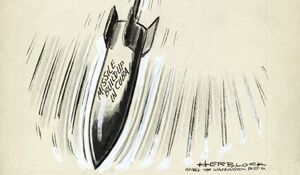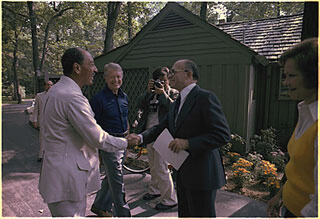The curated resources linked below are an initial sample of the resources coming from a collaborative and rigorous review process with the EAD Content Curation Task Force.
 Reset All
Reset All
Through the lens of the human propensity to complain, teachers can encourage students to recognize the principles, motivations, and precedents that underlie the Declaration of Independence. Help students understand the development of the Declaration as both a historical process and a compositional process through role play, creative writing, an introduction to important documents and a review of historic events.

The Roadmap








National Endowment for the Humanities


In this lesson, students will learn about the life and work of civil rights leader Martin Luther King, Jr. Students will listen to a brief biography, view photographs of the March on Washington, view a portion of King's "I Have a Dream" speech delivered in August 1963, and discuss what King's words mean to them.

The Roadmap








National Endowment for the Humanities


In this unit, students will complete four historical mysteries by exploring primary sources and answering the following questions with evidence, 1)Where is the history in a name? 2) What shared traditions make your family special? 3)Why do we have a day off from school? 4) How does a tradition become a holiday? Students will explore naming traditions, family traditions, civic versus religious holiday and lastly, the story of Juneteenth and how it has become a holiday celebrated across America.
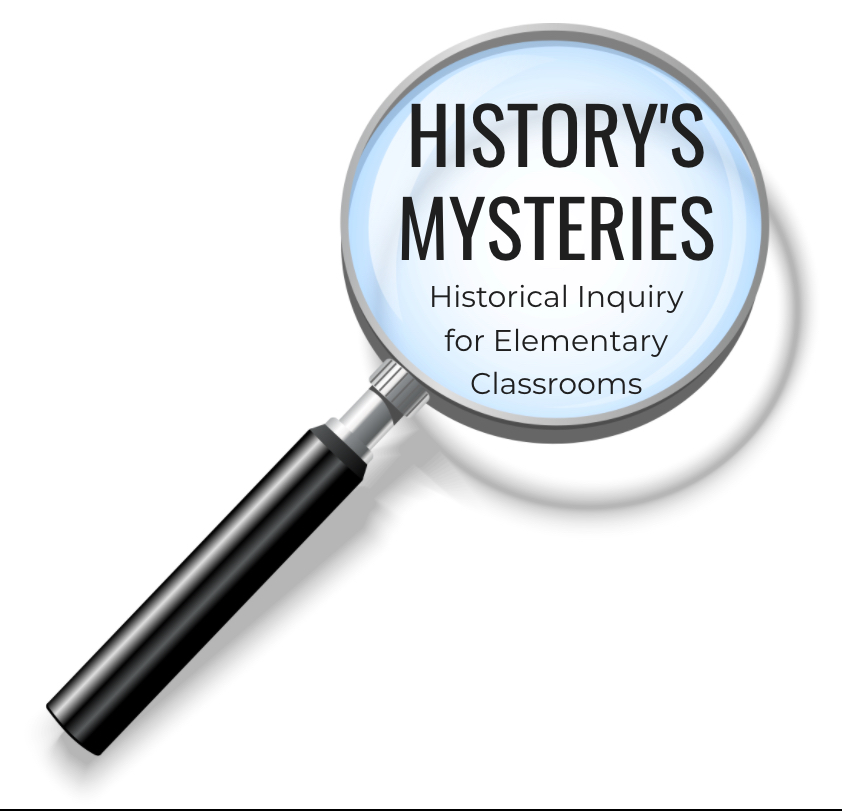
The Roadmap




History's Mysteries Historical Inquiry for Elementary Classrooms


In this lesson, students will learn about the life and work of civil rights leader Martin Luther King, Jr. Students will listen to a brief biography, view photographs of the March on Washington, and read a portion of King's "I Have a Dream" speech.

The Roadmap








National Endowment for the Humanities


With ever-evolving media, visual images play a significant and powerful role in moments of social change. This spotlight kit, made up almost entirely of primary source images ripe for visual analysis, focuses on moments of protest and resistance to government policies and other symbols of authority. Resources include images of events, movements and moments of resistance from the mid-20th to the early 21st centuries. In these moments, photographs and other media play the dual role of capturing the message and, in helping to spread its visibility, contributing to the fight for social change.
This image-based Spotlight Kit lends itself particularly well to a range of uses in the classroom: as an inquiry activity to introduce an historic era or the theme of protest; with diverse learners, including students with identified language processing disorders or students who are English Language Learners; and as a supplement to other text-based primary sources.
While no set of images can comprehensively capture any era, these particular examples were selected for their intentional use of visual media or the ways in which these moments have become symbolic and iconic. The images also include powerful slogans used by activists, many of which connect and echo across different events in this collection.
The resources in this spotlight kit are intended for classroom use, and are shared here under a CC-BY-SA license. Teachers, please review the copyright and fair use guidelines.





The Roadmap





















- Primary Resources by Decade1955-1960s (4)1970s-1980s (7)2000-2022 (10)
- All 21 Primary ResourcesMamie Till Mobley weeps at her son's funeral (1955)Mamie Till Mobley weeps at her son's funeral on Sept. 6, 1955, in Chicago. Mobley insisted that her son's body be displayed in an open casket forcing the nation to see the brutality directed at Blacks in the South. AP, FILE
Following the lynching murder of her fifteen-year-old son, Emmett Till,, Mamie TIll Mobley insisted on an open casket at his funeral; according to Time magazine, “When Till’s mother Mamie came to identify her son, she told the funeral director, ‘Let the people see what I’ve seen.’” The graphic images of his beaten body captured the attention of people across the United States, and the photo’s publication in Jet magazine is widely considered a galvanizing moment for the Civil Rights Era.
CitePrintShareShapiro, Emily. “Emmett Till's childhood home is named a Chicago landmark.” ABC News, 28 January 2021, https://abcnews.go.com/US/emmett-tills-childhood-home-named-chicago-landmark/story?id=75536520.
“The Photo That Changed the Civil Rights Movement.” TIME, 10 July 2016, https://time.com/4399793/emmett-till-civil-rights-photography/.
The March on Washington (1963)The March on Washington, 1963The March on Washington, 1963 By 1963 the Civil Rights Movement had grown substantially. They had support for both the black and white communities, as well as many celebrities. The purpose of this march was to gain national support for legislation in Congress. One of the most famous moments of the march was Dr. Martin Luther King Jr.'s “I Have a Dream” speech. Originally proposed in 1941 as the “March for Jobs and Freedom” by A. Philip Randolph, photographs of the March became – and remain – some of the most iconic images of the Civil Rights Movement.
CitePrintShareLeffler, W. K., photographer. (1963) Civil rights march on Washington, D.C. / WKL. Washington D.C, 1963. [Photograph] Retrieved from the Library of Congress, https://www.loc.gov/item/2003654393/.
Memphis Sanitation Workers’ Strike (1968)US National Guard troops block off Beale Street in Memphis, Tennessee, as civil rights protesters march for the third day in a row. Bettmann/Getty Images (March 29, 1968)Any number of images from the Civil Rights era would benefit a unit on freedom of speech, but this particular image does a few things: (1) it marks the occasion immediately before Martin Luther King’s assassination; (2) it provides an image of a single text used over and over, in contrast to the image above with multiple demands; and (3) it juxtaposes protesters exercising their first amendment rights with National Guard troops wielding weapons.
CitePrintShare“1968: The year in pictures.” CNN, https://www.cnn.com/interactive/2018/05/world/1968-cnnphotos/. Accessed 26 February 2023.
John Carlos and Tommie Smith raise fists in protest as they receive their Olympic medals (1968)John Carlos and Tommie Smith raise fists in protest as they receive their Olympic medals (1968)Aware of the platform provided by international television coverage of the Olympics, medal-winning U.S. track athletes John Carlos and Tommie Smith chose to raise a fist during their medal ceremony to protest racial inequality in the country they were representing, at the very moment the Star Spangled Banner was playing.
CitePrintShareLayden, Tim. “John Carlos, Tommie Smith: 1968 Olympics black power salute.” Sports Illustrated, 3 October 2018, https://www.si.com/olympics/2018/10/03/john-carlos-tommie-smith-1968-olympics-black-power-salute.
Women's Strike for Peace and Equality (1970)Women's Strike for Peace and Equality, New York City, Aug. 26, 1970. Eugene Gordon—The New York Historical Society / Getty ImagesThe 1970s Women’s Strike was organized by feminist author Betty Friedan, to commemorate the fiftieth anniversary of the 19th Amendment, which prevented women from being denied the vote “on the basis of sex.” As reported by Time, “Friedan’s original idea for Aug. 26 was a national work stoppage, in which women would cease cooking and cleaning in order to draw attention to the unequal distribution of domestic labor, an issue she discussed in her 1963 bestseller The Feminine Mystique. It isn’t clear how many women truly went on ‘strike’ that day, but the march served as a powerful symbolic gesture. Participants held signs with slogans like ‘Don’t Iron While the Strike is Hot’ and ‘Don’t Cook Dinner – Starve a Rat Today.’”
CitePrintShareCohen, Sascha. “Women's Equality Day: The History of When Women Went on Strike.” Time, 26 August 2015, https://time.com/4008060/women-strike-equality-1970/.
Poster image from “Women's Strike for Equality.” Wikipedia, https://en.wikipedia.org/wiki/Women%27s_Strike_for_Equality.
Protests against the Vietnam War (1969-70)Protest against the Vietnam War, Texas, December, 1969. Credit: Jimmy Cochran.Antiwar march October 31, 1970, Seattle, two months after the death of Reuben Salazar in the Los Angeles Chicano Moratorium protestVietnam War Protests The Vietnam protest movement represented a growing anti-war movement in the United States in the late 1960s to early 1970s. Protestors spanned the racial spectrum and employed varying methods to end the war in Vietnam, started by the United States.
In many cases, anti-war protests combined with efforts to turn attention to domestic issues. As described in the Mapping American Social Movements Project of the University of Washington, “Chicanos in Los Angeles formed alliances with other oppressed people who identified with the Third World Left and were committed to toppling U.S. imperialism and fighting racism…. The Chicano Moratorium antiwar protests of 1970 and 1971…reflected the vibrant collaboration between African Americans, Japanese Americans, American Indians, and white antiwar activists that had developed in Southern California.”
CitePrintShareCochran, Jimmy W. “[Line of Protesters Against Vietnam War] - The Portal to Texas History.” The Portal to Texas History, https://texashistory.unt.edu/ark:/67531/metapth1276191/.
Estrada, Josue. Chicano Movement Geography - Mapping American Social Movements, https://depts.washington.edu/moves/Chicano_geography.shtml.
Disability Rights Movement Protest for the Rehabilitation Act (1973)Disability Rights Movement Protest for the Rehabilitation Act 1973, photographer Tom Olin Greyhound Bus Depot in Los Angeles, Diane Coleman, Steve Remington and Rick Wilson.The Civil Rights Movement for Black equality inspired many other movements, including a national push for disability rights. The Rehabilitation Act of 1973 prohibited discrimination on the basis of disability and protected equal access for people with disabilities in areas including public services, employment, and education.
CitePrintShare“History and Timeline | Department on Disability.” Department on Disability, https://disability.lacity.org/resources/celebrate-ada-30th-anniversary/history-and-timeline.
Protests for and against the Equal Rights Amendment (1973)Protests led by Phyllis Schlafly, center, opposed the passage of the Equal Rights Amendment, 1973.Women supporting the ERA carry a banner down Pennsylvania Avenue in Washington DC on August 26, 1977The Equal Rights Amendment (ERA) states: "Equality of rights under the law shall not be denied or abridged by the United States or by any state on account of sex." First proposed as an Amendment to the Constitution in 1923, Congress finally passed the ERA in 1972. The senate vote was overwhelming: 84 to 8. The Amendment then went to state legislatures for approval, requiring 38 for ratification. 22 states ratified in that first year, and 8 more in 1973. But then a grassroots opposition movement made significant inroads. 35 states eventually approved it by 1977, but the passage of the Amendment then stalled and the deadline expired in 1982.
In these photos, women who fought both for and against the Amendment’s passage are pictured protesting. In the top photograph, American attorney and conservative activist Phyllis Schlafly, founder of STOP-ERA, leads a protest against the Amendment. In the bottom photograph, women dressed in white – evoking suffragists of the past – protest in favor of the Amendment in Washington, DC on August 26, 1977 – the same date of the Women’s Strike seven years earlier (also included in this Spotlight Kit).
CitePrintShare“ERA wouldn't be good for women | Tuesday's letters.” Tampa Bay Times, 9 September 2019, https://www.tampabay.com/opinion/letters/2019/09/09/era-wouldnt-be-good-for-women-tuesdays-letters/.
Prasad, Ritu. “Women's Equal Rights Amendment sees first hearing in 36 years.” BBC, 30 April 2019, https://www.bbc.com/news/world-us-canada-44319712.
Boycott Lettuce & Grapes Poster (1978)Boycott Lettuce & Grapes (1978)Dolores Huerta Lettuce Boycott Poster: Dolores Huerta and Cesar Chavez fought together for the rights and protections of the workers who picked fruits and vegetables in the fields and orchards, organizing a workers’ union and boycotts to gain attention and create economic pressure for the cause. Huerta led a successful lettuce and grape boycott, first in California and later on a national scale, that paved the way for migrant labor protection laws.
CitePrintShare(1978) Boycott Lettuce & Grapes. United States, 1978. [Chicago: Women's Graphics Collective] [Photograph] Retrieved from the Library of Congress, https://www.loc.gov/item/93505187/.
Lily Chin Holds a Photograph of Her Son Vincent Chin (1983)As explained by the New York Times, “Vincent Chin, a Chinese American man who lived near Detroit, was beaten to death with a baseball bat after being pursued by two white autoworkers in 1982…Mr. Chin was killed at a time when the rise of Japanese carmakers and the collapse of Detroit’s auto industry had contributed to a rise in anti-Asian racism.” The two men who murdered Chin accepted plea deals, serving only probation and paying about $3000 each in fines. In this image, Chin’s mother, Lily Chin, holds a photograph of her son.
CitePrintShareSmith, Mitch. “Decades After Infamous Beating Death, Recent Attacks Haunt Asian Americans.” The New York Times, 17 June 2022, https://www.nytimes.com/2022/06/16/us/vincent-chin-anti-asian-attack-detroit.html.
Keith Haring, Ignorance = Fear / Silence = Death (1989)Keith Haring, Ignorance = Fear / Silence = Death (1989)In the earliest years of the emergency of AIDS as a public health crisis, the American Government’s response was limited in terms of both resources dedicated to fighting the disease and public discussion of the disease, its victims, and public health strategies for prevention. Activists coined the phrase “silence=death” in 1987 to help raise awareness and spur the government to devote greater resources and attention.
CitePrintShareSherwin, Skye. “Keith Haring’s Ignorance = Fear: political activism | Art and design.” The Guardian, 23 August 2019, https://www.theguardian.com/artanddesign/2019/aug/23/keith-haring-ignorance-equals-fear.
Tea Party Protests (2009)Tea Party protest at the Connecticut State Capitol in Hartford, Connecticut. April 15, 2009. Organizers reported that the police estimate of attendance was 5000 people.Protesters in Washington D.C. during a rally, September 2009.After the financial crisis of 2008, a CNBC commentator, Rick Santelli, argued against President Obama’s mortgage relief policies and evoked the Revolutionary War-era Tea Party in calling for a protest against them. The “Tea Party Movement” took hold among some conservative and libertarian circles, leading to rallies and political campaigns arguing against federal taxation and in favor of fiscal conservatism and a free market economy. Several rallies were held specifically on April 15th – Tax Day – 2009.
CitePrintShareRoss, Sage. “File:Tea Party Protest, Hartford, Connecticut, 15 April 2009 - 041.jpg.” Wikimedia Commons, https://commons.wikimedia.org/wiki/File:Tea_Party_Protest,_Hartford,_Connecticut,_15_April_2009_-_041.jpg.
Zeleny, Jeff. “In Washington, Thousands Stage Protest of Big Government.” The New York Times, 12 September 2009, https://www.nytimes.com/2009/09/13/us/politics/13protestweb.html.
Occupy Wall Street / Park Avenue Millionaires Protest (2011)Occupy Wall Street supporters take part in the Park Avenue millionaires protest in New York on October 11.Occupy Wall Street Protests Starting in Washington, then moving to New York, protesters camped out in Zucotti park for an extended period of time in 2011 while voicing their concern about inequality in America. The protesters had a unique style of protesting employing methods such as “the people’s mic,” organized childcare, a library, and were predominantly “leaderless.” They had regularly scheduled marches throughout New York City for a variety of issues. Some critique focused on how participants were mostly white, accused of antisemitism, and had an amorphous set of demands.
CitePrintShareWires, N. P. R. S. and. (2011, October 15). Occupy Wall Street inspires worldwide protests. NPR. Retrieved February 27, 2022, from https://www.npr.org/2011/10/15/141382468/occupy-wall-street-inspires-worldwide-protests
Kastenbaum, Steve. “Occupy Wall Street: An experiment in consensus-building.” CNN, 18 October 2011, https://www.cnn.com/2011/10/18/us/occupy-wall-street-consensus-building/index.html.
Rally in Support of DACA (2017)In September of 2017, Attorney General Jeff Sessions’ announcement that the Trump Administration planned to end DACA, or the Deferred Action for Childhood Arrivals program, was met with protests around the country. As reported by National Public Radio, “hundreds of demonstrators gathered outside the White House. They shouted ‘We are America’ and ‘We want education. Down with deportation.’ The marchers then proceeded to the Department of Justice…and to the Trump International Hotel on Pennsylvania Avenue, where they staged a sit-in.”
CitePrintShareNeuman, Scott. “Protesters In D.C., Denver, LA, Elsewhere Demonstrate Against Rescinding DACA.” NPR, 5 September 2017, https://www.npr.org/sections/thetwo-way/2017/09/05/548727220/protests-in-d-c-denver-la-elsewhere-protest-rescinding-daca.
Dakota Access Pipeline Protest (2017)Dakota Access Pipeline Protests (2017)The planned construction of The Dakota Access Pipeline and resulting protests is a recent example of Native Americans and U.S. industry clashing. One side feared for the quality of their water and lands being abused. Proponents of the pipeline included union members and business, who viewed the pipeline’s development as essential to the growth of the economy.
CitePrintShareHersher, R. (2017, February 22). Key moments in the Dakota Access Pipeline Fight. NPR. Retrieved February 27, 2022, from https://www.npr.org/sections/thetwo-way/2017/02/22/514988040/key-moments-in-the-dakota-access-pipeline-fight
Iowa Public Radio | By Amy Mayer. (2020, August 28). Public Voices Support and oppose Bakken pipeline across Iowa. Iowa Public Radio. Retrieved February 26, 2022, from https://www.iowapublicradio.org/environment/2015-11-12/public-voices-support-and-oppose-bakken-pipeline-across-iowa#stream/0
How do you sign ‘Black Lives Matter’ in ASL? (2020)How do you sign ‘Black Lives Matter’ in ASL? (2020)As reported by the Los Angeles Times, the intersection of disability rights and racial equity can be complicated for deaf members of the Black Lives Matter Movement: “The phrase begins with four fingers cut across the brow, followed by two thumbs drawn up like breath from navel to chest, ending with a fierce tug with two hands down from the chin into fists toward the heart.
Black. Life. Cherish. This is how Harold Foxx and many other black deaf Angelenos sign ‘Black Lives Matter,’ though it is by no means a universal translation. .. It is a reminder of an ongoing struggle for equity, representation and authenticity in ASL, a language deeply scarred by racism and exclusion.”
CitePrintShareSharp, Sonja. “Column One: How do you sign 'Black Lives Matter' in ASL? For black deaf Angelenos, it's complicated.” Los Angeles Times, 8 June 2020, https://www.latimes.com/california/story/2020-06-08/how-do-you-sign-black-lives-matter-in-asl-for-black-deaf-angelenos-its-complicated.
Black Lives Matter Plaza (2020)Black Lives Matter Plaza (2020)On June 5, 2020, CNN reported: “Washington, DC is painting a message in giant, yellow letters down a busy DC street ahead of a planned protest this weekend: BLACK LIVES MATTER.
The massive banner-like project spans two blocks of 16th Street, a central axis that leads southward straight to the White House. Each of the 16 bold yellow letters spans the width of the two-lane street, creating an unmistakable visual easily spotted by aerial cameras and virtually anyone within a few blocks. The painters were contacted by Mayor Muriel Bowser and began work early Friday morning, the mayor’s office told CNN. Bowser has officially deemed the section of 16th Street bearing the mural ‘Black Lives Matter Plaza,’ complete with a new street sign.”
CitePrintShareSource of text: Willingham, AJ. “Washington, DC paints a giant 'Black Lives Matter' message on the road to the White House.” CNN, 5 June 2020, https://www.cnn.com/2020/06/05/us/black-lives-matter-dc-street-white-house-trnd/index.html.
Source of photo: “DC paints huge Black Lives Matter mural near White House.” WCTV, 5 June 2020, https://www.kktv.com/content/news/DC-paints-huge-Black-Lives-Matter-mural-near-White-House-571049311.html.
Protests against Mask Mandates (2021)People demonstrate against mask mandates at a Cobb county, Georgia, school board meeting last week. Photograph: Robin Rayne/Zuma Press Wire/Rex/Shutterstock (2021)Families protest any potential mask mandates before the Hillsborough County School Board meeting last month in Tampa, Fla.During the height of the Coronavirus pandemic, all levels of government – federal, state, and local – were required to respond to information emerging daily about what policies and practices would be safest for the public. In many places, including public spaces and schools, people were required to wear masks. Some people pushed back against these requirements, arguing that mandates were a violation of their individual rights.
CitePrintShareWong, Julia Carrie. “Masks off: how US school boards became 'perfect battlegrounds' for vicious culture wars.” The Guardian, 24 August 2021, https://www.theguardian.com/us-news/2021/aug/24/mask-mandates-covid-school-boards.
Shivaram, Deepa. “'Mask Wars' Are Erupting In Schools As Students Return : Back To School: Live Updates.” NPR, 20 August 2021, https://www.npr.org/sections/back-to-school-live-updates/2021/08/20/1028841279/mask-mandates-school-protests-teachers.
Rally against CRT in Schools (2021)Capitol rally to “stop critical race theory in Pennsylvania schools.” Harrisburg, Pennsylvania, July 14, 2021. Dan GleiterWhile “Critical Race Theory” (CRT) is taught primarily in law schools, protests began in 2021 against the teaching of CRT at local school board meetings in many places across the country. Often, participants in these protests raised a range of concerns about how topics including, but not limited to, race are covered in school curricula. These protests became part of a larger “parents’ rights” movement, arguing that parents should have a greater say in determining what their children learn in school.
CitePrintShareDeJesus, Ivey. “Critical race theory: What it is, what it isn't, and what it means for education in Pennsylvania.” Penn Live, 15 July 2021, https://www.pennlive.com/news/2021/07/critical-race-theory-the-nationwide-debate-is-emerging-in-pennsylvania.html.
“I Still Believe in Our City” Public Art (2021)The “I Still Believe In Our City” public art series was created in partnership with the New York City Commission on Human Rights. Courtesy Amanda Phingbodhipakkiya"I Am Not Your Scapegoat" poster.Courtesy Amanda PhingbodhipakkiyaAs reported by NBC News, “Last winter, as violent attacks against Asian elders began to spike, vividly painted portraits of Asian, Pacific Islander and Black people — flanked by vibrant florals and messages like ‘I am not your scapegoat’ — appeared on the walls of New York City's busiest subway and bus stops. Amanda Phingbodhipakkiya’s I Still Believe In Our City public art series, created in partnership with the New York City Commission on Human Rights, reminded millions of commuters of the humanity, diversity and beauty of Asian Americans at a time when many saw them as mere carriers of a deadly virus.”
CitePrintShareWang, Claire. “'I am not your scapegoat': See the art created by Asian Americans in a year of anti-Asian hate.” NBC News, 27 December 2021, https://www.nbcnews.com/news/asian-america/-not-scapegoat-see-art-created-asian-americans-year-anti-asian-hate-rcna9058.
March against Florida House Bill 1557 (2022)Demonstrators headed toward a pier in St. Petersburg during a rally against the bill.As reported by the New York Times in March of 2022, Gov. Ron DeSantis of Florida signed House Bill 1557, “which supporters call the ‘Parental Rights in Education’ bill, but that opponents refer to as the ‘Don’t Say Gay’ bill.” Among the provisions of the bill, “Instruction on gender and sexuality would be constrained in all grades; schools would be required to notify parents when children receive mental, emotional or physical health services, unless educators believe there is a risk of ‘abuse, abandonment, or neglect’; and parents would have the right to opt their children out of counseling and health services.”
CitePrintShareGoldstein, Dana. “What’s in House Bill 1557, Which Opponents Call ‘Don’t Say Gay.’” The New York Times, 18 March 2022, https://www.nytimes.com/2022/03/18/us/dont-say-gay-bill-florida.html.
Education for American Democracy


Through a series of interactive activities, students will explore their beliefs about heroes and heroism. They will share names of familiar figures they consider to be heroes, and then closely examine their reasons for believing each one is a hero.

The Roadmap




National Endowment for the Humanities


An inspiring story about a black, female journalist breaking barriers while seeking truth, justice and equality. This book highlights Ethel's journey from young journalist to White House correspondant, and her legacy of asking the tough questions that mattered most in the fight for Civil Rights.
The Roadmap




National Underground Railroad Freedom Center

This lesson teaches the importance of being informed, forming opinions, and advocating for those opinions to our country’s political life. Students will understand what it means to take a stand and why it is important for citizens to do so for an important issue.

The Roadmap




American Bar Association


As a new country, the United States made alliances with France and made agreements with indigenous nations. George Washington’s Farewell Address laid the foundation for the principles of American foreign policy, which urged leaders to avoid foreign entanglement; however, the United States found itself during the Early Republic engaged in foreign challenges. The 19th Century quickened the pace at which American policy added territory to the country. Indigenous nations, European powers and continental neighbors would all be part of the narrative as expansion influenced much of national policy. The United States proclaimed the Western Hemisphere off limits to European states in the Monroe Doctrine, although it would be decades before it could be effectively upheld.
The end of the 19th century and early 20th century established the fundamental tensions in US policy and how it plays a role in global affairs. The Spanish American War established the nation as a world power but ignited significant debate over that role. The annexation of places like the Philippines appeared incompatible to democratic ideals for many. Others saw adding territories like Hawaii as necessary for trade and military security. World War I led to serious proposals, led by the United States, guaranteeing future peace via collective security. However, Washington’s admonition about “foreign entanglements” proved more popular with the people and the United States embraced isolation and neutrality until World War II.
Over the last 70 years, the United States continues to be influenced by its economic self interest, its political ideals and its historical isolationist stance. Certainly, US foreign policy has been inconsistent as it struggles with the instructions offered by its first president and the demands of the global community.
The resources in this spotlight kit are intended for classroom use, and are shared here under a CC-BY-SA license. Teachers, please review the copyright and fair use guidelines.



The Roadmap





























- Primary Resources by Era/DateAmerican Revolution and the Early Republic 1778-1823 (4)Antebellum-World War I (1845-1919) (8)World War II Era (1938-1946) (6)Post-War Era (1951-Present) (5)
- All 23 Primary ResourcesTreaty with the Delaware (1778)Transcript
Articles of agreement and confederation, made and, entered; into by, Andrew and Thomas Lewis, Esquires, Commissioners for, and in Behalf of the United States of North-America of the one Part, and Capt. White Eyes, Capt. John Kill Buck, Junior, and Capt. Pipe, Deputies and Chief Men of the Delaware Nation of the other Part.
ARTICLE I.
That all offenses or acts of hostilities by one, or either of the contracting parties against the other, be mutually forgiven, and buried in the depth of oblivion, never more to be had in remembrance.ARTICLE II.
That a perpetual peace and friendship shall from henceforth take place, and subsist between the contracting: parties aforesaid, through all succeeding generations: and if either of the parties are engaged in a just and necessary war with any other nation or nations, that then each shall assist the other in due proportion to their abilities, till their enemies are brought to reasonable terms of accommodation: and that if either of them shall discover any hostile designs forming against the other, they shall give the earliest notice thereof that timeous measures may be taken to prevent their ill effect.This treaty established a tenuous peace between Americans and Native Americans. As explained in Smithsonian Magazine, “The Treaty with the Delaware Nation, signed at Fort Pitt in September 1778, represents a time when the newly independent United States needed American Indian allies to drive British troops from forts and outposts west of the Appalachian Mountains. Despite the treaty’s provisions, however, conflict continued in the Ohio Territory, leading the Delaware people to look for safer lands farther north and west.”
CitePrintShareRecordsofrights.org. 2022. Treaty with the Delaware, 1778 | Records of Rights. [online] Available at: http://recordsofrights.org/records/227/treaty-with-the-delaware
Magazine, S. (2018, May 21). A brief balance of power-the 1778 treaty with the Delaware Nation. Smithsonian.com. Retrieved May 28, 2022, from https://www.smithsonianmag.com/blogs/national-museum-american-indian/2018/05/22/1778-delaware-treaty/
Full text of the Treaty is available here.
George Washington's Farewell Address (1797)Washington, arguably the most respected foundational leader, was very clear about not getting involved in “foreign entanglements.” It’s important to contemplate his prescriptive advice and how close (or far) America has lived up to his vision.
George Washington’s Farewell Address (1797)“...Against the insidious wiles of foreign influence (I conjure you to believe me, fellow-citizens,) the jealousy of a free people ought to be constantly awake; since history and experience prove, that foreign influence is one of the most baneful foes of Republican Government. But that jealousy, to be useful, must be impartial; else it becomes the instrument of the very influence to be avoided, instead of a defense against it. Excessive partiality for one foreign nation, and excessive dislike of another, cause those whom they actuate to see danger only on one side, and serve to veil and even second the arts of influence on the other. Real patriots, who may resist the intrigues of the favorite, are liable to become suspected and odious; while its tools and dupes usurp the applause and confidence of the people, to surrender their interests.
The great rule of conduct for us, in regard to foreign nations, is, in extending our commercial relations, to have with them as little political connection as possible. So far as we have already formed engagements, let them be fulfilled with perfect good faith. Here let us stop.”
CitePrintShareWashington, George. George Washington Papers, Series 2, Letterbooks -1799: Letterbook 24, April 3, 1793 - March 3, 1797. 1793. Manuscript/Mixed Material. Retrieved from the Library of Congress, https://www.loc.gov/resource/mgw2.024/?sp=229
Full text here: “Washington's Farewell Address, 1796 · George Washington's Mount Vernon.” Mount Vernon, https://www.mountvernon.org/education/primary-source-collections/primary-source-collections/article/washington-s-farewell-address-1796/. Accessed 21 January 2023.
Request on Treaty of Tripoli (1797)Article 11 of this treaty established the United States as not being considered a “Christian Nation” by a foreign country. This would play an important part in diplomatic relations, especially with “non-Christian nations.” As one of our earlier treaties, this is also important because it sets the tone for foreign policy.
CitePrintShareSenate, Request on Treaty with Tripoli. -12-30, 1805. Manuscript/Mixed Material. Retrieved from the Library of Congress, www.loc.gov/item/mtjbib015461/.
President Monroe's Annual Message (1823)Transcript“...The citizens of the United States cherish sentiments the most friendly in favor of the liberty and happiness of their fellow-men on that side of the Atlantic. In the wars of the European powers in matters relating to themselves we have never taken any part, nor does it comport with our policy to do so. It is only when our rights are invaded or seriously menaced that we resent injuries or make preparation for our defense. With the movements in this hemisphere we are of necessity more immediately connected, and by causes which must be obvious to all enlightened and impartial observers. The political system of the allied powers is essentially different in this respect from that of America. This difference proceeds from that which exists in their respective Governments; and to the defense of our own, which has been achieved by the loss of so much blood and treasure, and matured by the wisdom of their most enlightened citizens, and under which we have enjoyed unexampled felicity, this whole nation is devoted. We owe it, therefore, to candor and to the amicable relations existing between the United States and those powers to declare that we should consider any attempt on their part to extend their system to any portion of this hemisphere as dangerous to our peace and safety.”
This item details “Monroe’s Doctrine” in President Monroe’s annual message to Congress. President Monroe buried a very serious global policy within the text of a routine speech. In it, he warned European powers to recognize the western hemisphere as America’s sphere of influence. His words are important to study how U.S. policy shifted in a drastic way.
CitePrintShareMemory.loc.gov. 2022. A Century of Lawmaking for a New Nation: U.S. Congressional Documents and Debates, 1774 - 1875. [online] Available at: <https://memory.loc.gov/cgi-bin/ampage?collId=llac&fileName=041/llac041.db&recNum=4> [Accessed 25 April 2022].
Full text here: “Monroe Doctrine (1823) | National Archives.” National Archives |, 10 May 2022, https://www.archives.gov/milestone-documents/monroe-doctrine. Accessed 21 January 2023.
The Patriots Get Their Beans- Political Cartoon (1845)This cartoon is a satirical look at presidential power. IN it there is “A satirical view of the scramble among newly elected President James K. Polk's 1844 campaign supporters, or "patriots," for "their beans," i.e., patronage and other official favors.”
CitePrintShareBaillie, James S., Active, and Edward Williams Clay. The Patriots Getting Their Beans. N.Y.: Lith. & pub. by James Baillie. Photograph. Retrieved from the Library of Congress, www.loc.gov/item/2008661455/.
The Treaty of Guadalupe Hidalgo (1848)As explained by the National Archives, “This treaty, signed on February 2, 1848, ended the war between the United States and Mexico. By its terms, Mexico ceded 55 percent of its territory, including the present-day states California, Nevada, Utah, New Mexico, most of Arizona and Colorado, and parts of Oklahoma, Kansas, and Wyoming. Mexico also relinquished all claims to Texas, and recognized the Rio Grande as the southern boundary with the United States.”
ARTICLE VIII Mexicans now established in territories previously belonging to Mexico, and which remain for the future within the limits of the United States, as defined by the present treaty, shall be free to continue where they now reside, or to remove at any time to the Mexican Republic…Those who shall prefer to remain in the said territories may either retain the title and rights of Mexican citizens or acquire those of citizens of the United States. But they shall be under the obligation to make their election within one year from the date of the exchange of ratifications of this treaty.…
ARTICLE IX The Mexicans who, in the territories aforesaid, shall not preserve the character of citizens of the Mexican Republic, conformably with what is stipulated in the preceding article, shall be incorporated into the Union of the United States. and be admitted at the proper time (to be judged of by the Congress of the United States) to the enjoyment of all the rights of citizens of the United States…
ARTICLE XII In consideration of the extension acquired by the boundaries of the United States, as defined in the fifth article of the present treaty, the Government of the United States engages to pay to that of the Mexican Republic the sum of fifteen million of dollars.
1Baillie, James S., Active, and Edward Williams Clay. The Patriots Getting Their Beans. N.Y.: Lith. & pub. by James Baillie. Photograph. Retrieved from the Library of Congress, <www.loc.gov/item/2008661455/>.CitePrintShare“Treaty of Guadalupe Hidalgo (1848) | National Archives.” National Archives |, 20 September 2022, https://www.archives.gov/milestone-documents/treaty-of-guadalupe-hidalgo. Accessed 21 January 2023.
Petition Against the Annexation of Hawaii (1897)Many people who were annexed by the United States tried to resist. This document shows how native Hawaiians did not want to be part of the United States.
CitePrintSharePetition Against the Annexation of Hawaii; 1897; Petitions and Memorials, Resolutions of State Legislatures, and Related Documents, which were referred to the Committee on Foreign Relations from the 55th Congress; Petitions and Memorials, 1817 - 2000; Records of the U.S. Senate, Record Group 46; National Archives Building, Washington, DC. [Online Version, https://www.docsteach.org/documents/document/petition-against-annexation-hawaii, April 25, 2022]
Chicago Liberty Meeting (1899)A session held by the Anti-imperialist league, this meeting consisted of people who spoke out against the U.S. annexation of the Philippines. It represents a domestic attitude about imperial ambitions.
CitePrintShareLoc.gov. 2022. Anti-imperialist league - The World of 1898: The Spanish-American War (Hispanic Division, Library of Congress). [online] Available at: <https://www.loc.gov/rr/hispanic/1898/league.html> [Accessed 25 April 2022]
Pacifists (1917)Simply titled, “Pacifists,” this photo shows how many Americans wanted a more democratic process to foreign involvement with the implicit understanding that Americans do not desire foreign involvement.
CitePrintShareHarris & Ewing, photographer. PACIFISTS. Photograph. Retrieved from the Library of Congress, www.loc.gov/item/2016867043/.
Woodrow Wilson's Fourteen Points (1918)Woodrow Wilson’s Fourteen points were statements of principles that outlined why the United States was entering the first World War. In other words, it was a clear statement of what Americans were fighting for. To many historians, this marked the end of isolationism.
CitePrintShareWilson, W., 2022. Woodrow Wilson's "Fourteen Points" | Peace and a New World Order? | World Overturned | Explore | Echoes of the Great War: American Experiences of World War I | Exhibitions at the Library of Congress | Library of Congress. [online] The Library of Congress. Available at: <https://www.loc.gov/exhibitions/world-war-i-american-experiences/about-this-exhibition/world-overturned/peace-and-a-new-world-order/woodrow-wilsons-fourteen-points/> [Accessed 25 April 2022].
Follow the Pied Piper (1918)This picture shows how kids were recruited to help make “victory gardens” and help win the war effort. It’s useful for demonstrating how Americans at home supported war goals.
CitePrintShareThe World War I Garden and Victory Garden. The World War I War Garden and Victory Garden - How Does Your Garden Grow Online Exhibit State Historical Society of North Dakota. (n.d.). Retrieved June 4, 2022, from https://www.history.nd.gov/exhibits/gardening/militaryevents8.html
Mary Church Terrell Papers (1919)This source shows a time when an American argued in favor of American intervention on behalf of Haiti, Liberia, and Abyssinia (Ethiopia).
CitePrintShareTerrell, Mary Church. Mary Church Terrell Papers: Subject File, -1962; Women's International League for Peace and Freedom, 1919 to 1921 , undated. - 1921, 1919. Manuscript/Mixed Material. Retrieved from the Library of Congress, www.loc.gov/item/mss425490340/. (Image 4)
Telegrams, Eleanor Roosevelt and President F.D. Roosevelt (1939)These images are telegrams sent from Eleanor Roosevelt, First Lady, to President Roosevelt, and his response. According to the U.S. Holocaust Memorial Museum, “in February 1939, the First Lady joined a list of prominent Americans who supported the passage of the Wagner-Rogers Bill, which proposed to ‘permit the entry of 20,000 German refugee children, ages 14 and under, into the United States’ over a two-year period and outside of the existing, restrictive immigration quota system. Though she was often outspoken on behalf of causes she cared about, this was the first time she publicly endorsed a piece of pending legislation as first lady. Eleanor Roosevelt told reporters that the bill was ‘a wise way to do a humanitarian act.’ The president never officially commented on the proposed legislation. The bill was never voted on.”
CitePrintShareEleanor Roosevelt | Americans and the Holocaust, https://exhibitions.ushmm.org/americans-and-the-holocaust/personal-story/eleanor-roosevelt.
President Franklin D. Roosevelt, A Date Which Will Live in Infamy" Address (1941)Although the United States had resisted officially entering the war, the surprise bombing of Pearl Harbor on December 7, 1941 led to the declaration of war on Japan and its allies. This speech, which Roosevelt delivered to Congress the following day, was also broadcast live on national radio.
President Franklin D. Roosevelt, A Date Which Will Live in Infamy" Address to the Congress Asking That a State of War Be Declared Between the United States and Japan. December 8, 1941:“Mr. Vice President, and Mr. Speaker, and Members of the Senate and House of Representatives:
YESTERDAY, December 7, 1941 a date which will live in infamy, the United States of America was suddenly and deliberately attacked by naval and air forces of the Empire of Japan.
The United States was at peace with that Nation and, at the solicitation of Japan, was still in conversation with its Government and its Emperor looking toward the maintenance of peace in the Pacific. Indeed, one hour after Japanese air squadrons had commenced bombing in the American Island of Oahu, the Japanese Ambassador to the United States and his colleague delivered to our Secretary of State a formal reply to a recent American message. And while this reply stated that it seemed useless to continue the existing diplomatic negotiations, it contained no threat or hint of war or of armed attack.
It will be recorded that the distance of Hawaii from Japan makes it obvious that the attack was deliberately planned many days or even weeks ago. During the intervening time the Japanese Government has deliberately sought to deceive the United States by false statements and expressions of hope for continued peace.
The attack yesterday on the Hawaiian Islands has caused severe damage to American naval and military forces. I regret to tell you that very many American lives have been lost. In addition American ships have been reported torpedoed on the high seas between San Francisco and Honolulu.
…The people of the United States have already formed their opinions and well understand the implications to the very life and safety of our Nation.
As Commander in Chief of the Army and Navy I have directed that all measures be taken for our defense. But always will our whole Nation remember the character of the onslaught against us. No matter how long it may take us to overcome this premeditated invasion, the American people in their righteous might will win through to absolute victory.
I believe that I interpret the will of the Congress and of the people when I assert that we will not only defend ourselves to the uttermost but will make it very certain that this form of treachery shall never again endanger us….
I ask that the Congress declare that since the unprovoked and dastardly attack by Japan on Sunday, December 7, 1941, a state of war has existed between the United States and the Japanese Empire.”
CitePrintShareRoosevelt, Franklin D. “Speech by Franklin D. Roosevelt, New York (Transcript).” Library of Congress, https://www.loc.gov/resource/afc1986022.afc1986022_ms2201/?st=text.
Presidential Proclamation 2525: Enemy Aliens (1941)This Presidential Proclamation, which followed the Japanese attack on Pearl Harbor, set the stage for the incarceration of Japanese Americans. Under this proclamation, even Japanese-American citizens were treated as “enemy aliens,” deprived of their Constitutional rights, and removed from their homes into internment camps for the duration of the war.
CitePrintShare“Internment Archives.” Internment Archives, https://www.internmentarchives.com/specialreports/smithsonian/smithsonian10.php.
Recruitment Posters (1942)Uncle Sam Recruitment Poster (1942)“We Can Do It!” Rosie the Riveter (1942)These two iconic images are most closely associated with their use during World War II, though the “Uncle Sam” character was first created during World War I. The Department of Defense refers to these images, intended to recruit soldiers to fight and women to work in the factories to support the war effort, as the “social media of the time.” The “We Can Do It” poster introduced the character of Rosie the Riveter, intended to attract more women to fill jobs left vacant by men leaving for the armed forces.
CitePrintShareVergun, David. “WWII Posters Aimed to Inspire, Encourage Service,” U.S. Department of Defense, 16 October 2019, https://www.defense.gov/News/Feature-Stories/story/Article/1990131/wwii-posters-aimed-to-inspire-encourage-service/.
Yalta Conference, New York Times (1945)On February 11, 1945, President Roosevelt, British Prime Minister Winston Churchill and Soviet leader Josef Stalin signed the Yalta Agreement. The three world leaders negotiated plans for the governance of Europe following the end of World War II.
Potsdam Declaration (1945)The terms of the Potsdam Declaration include “that Japan …be given an opportunity to end this war,” but within two weeks, the United States deployed atomic bombs on the Japanese cities of Hiroshima and Nagasaki. The use of these two nuclear weapons was the only such use in history. The final statement of the Proclamation, included in this excerpt, hints at that threat. While Japan did surrender after the use of the atomic bombs, some historians question whether the deployment of the weapons was necessary for surrender or whether the surrender could have been secured without it.
Proclamation Defining Terms for Japanese Surrender Issued, at Potsdam, July 26, 1945- We―the President of the United States, the President of the National Government of the Republic of China, and the Prime Minister of Great Britain, representing the hundreds of millions of our countrymen, have conferred and agree that Japan shall be given an opportunity to end this war.
- The prodigious land, sea and air forces of the United States, the British Empire and of China, many times reinforced by their armies and air fleets from the west, are poised to strike the final blows upon Japan. This military power is sustained and inspired by the determination of all the Allied Nations to prosecute the war against Japan until she ceases to resist.
- The occupying forces of the Allies shall be withdrawn from Japan as soon as these objectives have been accomplished and there has been established in accordance with the freely expressed will of the Japanese people a peacefully inclined and responsible government.
- We call upon the government of Japan to proclaim now the unconditional surrender of all Japanese armed forces, and to provide proper and adequate assurances of their good faith in such action. The alternative for Japan is prompt and utter destruction.
CitePrintShare“Potsdam Declaration - Nuclear Museum.” Atomic Heritage Foundation, https://ahf.nuclearmuseum.org/ahf/key-documents/potsdam-declaration/.
The Causes of World War (1951)In this draft of a speech WEB DuBois was critiquing war as a means to perpetuate supremacy. He argued against involvement.
CitePrintShareDuBois, W., 2022. The causes of world war, September 28, 1951. [online] Credo.library.umass.edu. Available at: https://credo.library.umass.edu/view/full/mums312-b201-i071 [Accessed 25 April 2022].
U.S.S.R. Moscow, Mr. K[hrushchev] & V.P. Nixon on T.V. at American exhibit (1959)U.S.S.R. Moscow, Mr. K[hrushchev] & V.P. Nixon on T.V. at American exhibit (1959)This source shows the impact television made on foreign policy. Nixon and Kruschev debated about the merits of their respective economic types.
CitePrintShareLoc.gov. 2022. U.S.S.R. Moscow, Mr. K[hrushchev] & V.P. Nixon on T.V. at American exhibit. [online] Available at: https://www.loc.gov/pictures/resource/ppmsca.19730/ [Accessed 25 April 2022].
Tick-Tock-Tock Political Cartoon (1962)This satirical cartoon shows the seemingly inevitable nature of nuclear war, after getting entangled with The Soviet Union. It can be used to show how close the United States came to nuclear war and the results of brinkmanship policy.
CitePrintShareBlock, H., 2022. "Tick-tock-tick". [online] Loc.gov. Available at: <https://www.loc.gov/pictures/item/2011661783/> [Accessed 25 April 2022].
Anti-Vietnam War Protest (1968)A massive movement against the war in Vietnam, protestors took to the streets to voice their outrage in U.S. policy, arguing for less intervention in global affairs.
CitePrintShareLoc.gov. 2022. [Anti-Vietnam war protest and demonstration in front of the White House in support of singer Eartha Kitt]. [online] Available at: https://www.loc.gov/pictures/item/2010646065/ [Accessed 25 April 2022].
Camp David Summit (1978)This meeting between the U.S. president and leaders from Egypt and Israel successfully produced the basis for an Egyptian-Israeli peace, in the form of two “Framework” documents, which laid out the principles of a bilateral peace agreement as well as a formula for Palestinian self-government in Gaza and the West Bank.
1U.S. Department of State. (n.d.). U.S. Department of State. Retrieved June 2, 2022, from https://history.state.gov/milestones/1977-1980/camp-david#:~:text=In%20the%20end%2C%20while%20the,Gaza%20and%20the%20West%20Bank.
CitePrintShareU.S. Department of State. (n.d.). U.S. Department of State. Retrieved June 2, 2022, from https://history.state.gov/milestones/1977-1980/camp-david#:~:text=In%20the%20end%2C%20while%20the,Gaza%20and%20the%20West%20Bank.
Education for American Democracy


In this Kindergarten unit, students will explore three mysteries, 1)What is the difference between then and now? 2) Where do people work? and 3) How is work different now than in the past? Students will explore primary source images from the Library of Congress to solve historical mysteries with evidence.

The Roadmap


History's Mysteries Historical Inquiry for Elementary Classrooms


Download the Roadmap and Report
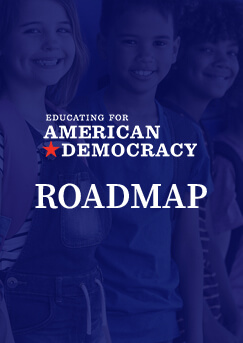
Download the Educating for American Democracy Roadmap and Report Documents
Get the Roadmap and Report to unlock the work of over 300 leading scholars, educators, practitioners, and others who spent thousands of hours preparing this robust framework and guiding principles. The time is now to prioritize history and civics.
Your contact information will not be shared, and only used to send additional updates and materials from Educating for American Democracy, from which you can unsubscribe.
We the People
This theme explores the idea of “the people” as a political concept–not just a group of people who share a landscape but a group of people who share political ideals and institutions.
Institutional & Social Transformation
This theme explores how social arrangements and conflicts have combined with political institutions to shape American life from the earliest colonial period to the present, investigates which moments of change have most defined the country, and builds understanding of how American political institutions and society changes.
Contemporary Debates & Possibilities
This theme explores the contemporary terrain of civic participation and civic agency, investigating how historical narratives shape current political arguments, how values and information shape policy arguments, and how the American people continues to renew or remake itself in pursuit of fulfillment of the promise of constitutional democracy.
Civic Participation
This theme explores the relationship between self-government and civic participation, drawing on the discipline of history to explore how citizens’ active engagement has mattered for American society and on the discipline of civics to explore the principles, values, habits, and skills that support productive engagement in a healthy, resilient constitutional democracy. This theme focuses attention on the overarching goal of engaging young people as civic participants and preparing them to assume that role successfully.
Our Changing landscapes
This theme begins from the recognition that American civic experience is tied to a particular place, and explores the history of how the United States has come to develop the physical and geographical shape it has, the complex experiences of harm and benefit which that history has delivered to different portions of the American population, and the civics questions of how political communities form in the first place, become connected to specific places, and develop membership rules. The theme also takes up the question of our contemporary responsibility to the natural world.
A New Government & Constitution
This theme explores the institutional history of the United States as well as the theoretical underpinnings of constitutional design.
A People in the World
This theme explores the place of the U.S. and the American people in a global context, investigating key historical events in international affairs,and building understanding of the principles, values, and laws at stake in debates about America’s role in the world.
The Seven Themes
The Seven Themes provide the organizational framework for the Roadmap. They map out the knowledge, skills, and dispositions that students should be able to explore in order to be engaged in informed, authentic, and healthy civic participation. Importantly, they are neither standards nor curriculum, but rather a starting point for the design of standards, curricula, resources, and lessons.
Driving questions provide a glimpse into the types of inquiries that teachers can write and develop in support of in-depth civic learning. Think of them as a starting point in your curricular design.
Learn more about inquiry-based learning in the Pedagogy Companion.
Sample guiding questions are designed to foster classroom discussion, and can be starting points for one or multiple lessons. It is important to note that the sample guiding questions provided in the Roadmap are NOT an exhaustive list of questions. There are many other great topics and questions that can be explored.
Learn more about inquiry-based learning in the Pedagogy Companion.
The Seven Themes
The Seven Themes provide the organizational framework for the Roadmap. They map out the knowledge, skills, and dispositions that students should be able to explore in order to be engaged in informed, authentic, and healthy civic participation. Importantly, they are neither standards nor curriculum, but rather a starting point for the design of standards, curricula, resources, and lessons.
The Five Design Challenges
America’s constitutional politics are rife with tensions and complexities. Our Design Challenges, which are arranged alongside our Themes, identify and clarify the most significant tensions that writers of standards, curricula, texts, lessons, and assessments will grapple with. In proactively recognizing and acknowledging these challenges, educators will help students better understand the complicated issues that arise in American history and civics.
Motivating Agency, Sustaining the Republic
- How can we help students understand the full context for their roles as civic participants without creating paralysis or a sense of the insignificance of their own agency in relation to the magnitude of our society, the globe, and shared challenges?
- How can we help students become engaged citizens who also sustain civil disagreement, civic friendship, and thus American constitutional democracy?
- How can we help students pursue civic action that is authentic, responsible, and informed?
America’s Plural Yet Shared Story
- How can we integrate the perspectives of Americans from all different backgrounds when narrating a history of the U.S. and explicating the content of the philosophical foundations of American constitutional democracy?
- How can we do so consistently across all historical periods and conceptual content?
- How can this more plural and more complete story of our history and foundations also be a common story, the shared inheritance of all Americans?
Simultaneously Celebrating & Critiquing Compromise
- How do we simultaneously teach the value and the danger of compromise for a free, diverse, and self-governing people?
- How do we help students make sense of the paradox that Americans continuously disagree about the ideal shape of self-government but also agree to preserve shared institutions?
Civic Honesty, Reflective Patriotism
- How can we offer an account of U.S. constitutional democracy that is simultaneously honest about the wrongs of the past without falling into cynicism, and appreciative of the founding of the United States without tipping into adulation?
Balancing the Concrete & the Abstract
- How can we support instructors in helping students move between concrete, narrative, and chronological learning and thematic and abstract or conceptual learning?
Each theme is supported by key concepts that map out the knowledge, skills, and dispositions students should be able to explore in order to be engaged in informed, authentic, and healthy civic participation. They are vertically spiraled and developed to apply to K—5 and 6—12. Importantly, they are not standards, but rather offer a vision for the integration of history and civics throughout grades K—12.
Helping Students Participate
- How can I learn to understand my role as a citizen even if I’m not old enough to take part in government? How can I get excited to solve challenges that seem too big to fix?
- How can I learn how to work together with people whose opinions are different from my own?
- How can I be inspired to want to take civic actions on my own?
America’s Shared Story
- How can I learn about the role of my culture and other cultures in American history?
- How can I see that America’s story is shared by all?
Thinking About Compromise
- How can teachers teach the good and bad sides of compromise?
- How can I make sense of Americans who believe in one government but disagree about what it should do?
Honest Patriotism
- How can I learn an honest story about America that admits failure and celebrates praise?
Balancing Time & Theme
- How can teachers help me connect historical events over time and themes?
The Six Pedagogical Principles
EAD teacher draws on six pedagogical principles that are connected sequentially.
Six Core Pedagogical Principles are part of our Pedagogy Companion. The Pedagogical Principles are designed to focus educators’ effort on techniques that best support the learning and development of student agency required of history and civic education.
EAD teachers commit to learn about and teach full and multifaceted historical and civic narratives. They appreciate student diversity and assume all students’ capacity for learning complex and rigorous content. EAD teachers focus on inclusion and equity in both content and approach as they spiral instruction across grade bands, increasing complexity and depth about relevant history and contemporary issues.
Growth Mindset and Capacity Building
EAD teachers have a growth mindset for themselves and their students, meaning that they engage in continuous self-reflection and cultivate self-knowledge. They learn and adopt content as well as practices that help all learners of diverse backgrounds reach excellence. EAD teachers need continuous and rigorous professional development (PD) and access to professional learning communities (PLCs) that offer peer support and mentoring opportunities, especially about content, pedagogical approaches, and instruction-embedded assessments.
Building an EAD-Ready Classroom and School
EAD teachers cultivate and sustain a learning environment by partnering with administrators, students, and families to conduct deep inquiry about the multifaceted stories of American constitutional democracy. They set expectations that all students know they belong and contribute to the classroom community. Students establish ownership and responsibility for their learning through mutual respect and an inclusive culture that enables students to engage courageously in rigorous discussion.
Inquiry as the Primary Mode for Learning
EAD teachers not only use the EAD Roadmap inquiry prompts as entry points to teaching full and complex content, but also cultivate students’ capacity to develop their own deep and critical inquiries about American history, civic life, and their identities and communities. They embrace these rigorous inquiries as a way to advance students’ historical and civic knowledge, and to connect that knowledge to themselves and their communities. They also help students cultivate empathy across differences and inquisitiveness to ask difficult questions, which are core to historical understanding and constructive civic participation.
Practice of Constitutional Democracy and Student Agency
EAD teachers use their content knowledge and classroom leadership to model our constitutional principle of “We the People” through democratic practices and promoting civic responsibilities, civil rights, and civic friendship in their classrooms. EAD teachers deepen students’ grasp of content and concepts by creating student opportunities to engage with real-world events and problem-solving about issues in their communities by taking informed action to create a more perfect union.
Assess, Reflect, and Improve
EAD teachers use assessments as a tool to ensure all students understand civics content and concepts and apply civics skills and agency. Students have the opportunity to reflect on their learning and give feedback to their teachers in higher-order thinking exercises that enhance as well as measure learning. EAD teachers analyze and utilize feedback and assessment for self-reflection and improving instruction.
EAD teachers commit to learn about and teach full and multifaceted historical and civic narratives. They appreciate student diversity and assume all students’ capacity for learning complex and rigorous content. EAD teachers focus on inclusion and equity in both content and approach as they spiral instruction across grade bands, increasing complexity and depth about relevant history and contemporary issues.
Growth Mindset and Capacity Building
EAD teachers have a growth mindset for themselves and their students, meaning that they engage in continuous self-reflection and cultivate self-knowledge. They learn and adopt content as well as practices that help all learners of diverse backgrounds reach excellence. EAD teachers need continuous and rigorous professional development (PD) and access to professional learning communities (PLCs) that offer peer support and mentoring opportunities, especially about content, pedagogical approaches, and instruction-embedded assessments.
Building an EAD-Ready Classroom and School
EAD teachers cultivate and sustain a learning environment by partnering with administrators, students, and families to conduct deep inquiry about the multifaceted stories of American constitutional democracy. They set expectations that all students know they belong and contribute to the classroom community. Students establish ownership and responsibility for their learning through mutual respect and an inclusive culture that enables students to engage courageously in rigorous discussion.
Inquiry as the Primary Mode for Learning
EAD teachers not only use the EAD Roadmap inquiry prompts as entry points to teaching full and complex content, but also cultivate students’ capacity to develop their own deep and critical inquiries about American history, civic life, and their identities and communities. They embrace these rigorous inquiries as a way to advance students’ historical and civic knowledge, and to connect that knowledge to themselves and their communities. They also help students cultivate empathy across differences and inquisitiveness to ask difficult questions, which are core to historical understanding and constructive civic participation.
Practice of Constitutional Democracy and Student Agency
EAD teachers use their content knowledge and classroom leadership to model our constitutional principle of “We the People” through democratic practices and promoting civic responsibilities, civil rights, and civic friendship in their classrooms. EAD teachers deepen students’ grasp of content and concepts by creating student opportunities to engage with real-world events and problem-solving about issues in their communities by taking informed action to create a more perfect union.
Assess, Reflect, and Improve
EAD teachers use assessments as a tool to ensure all students understand civics content and concepts and apply civics skills and agency. Students have the opportunity to reflect on their learning and give feedback to their teachers in higher-order thinking exercises that enhance as well as measure learning. EAD teachers analyze and utilize feedback and assessment for self-reflection and improving instruction.


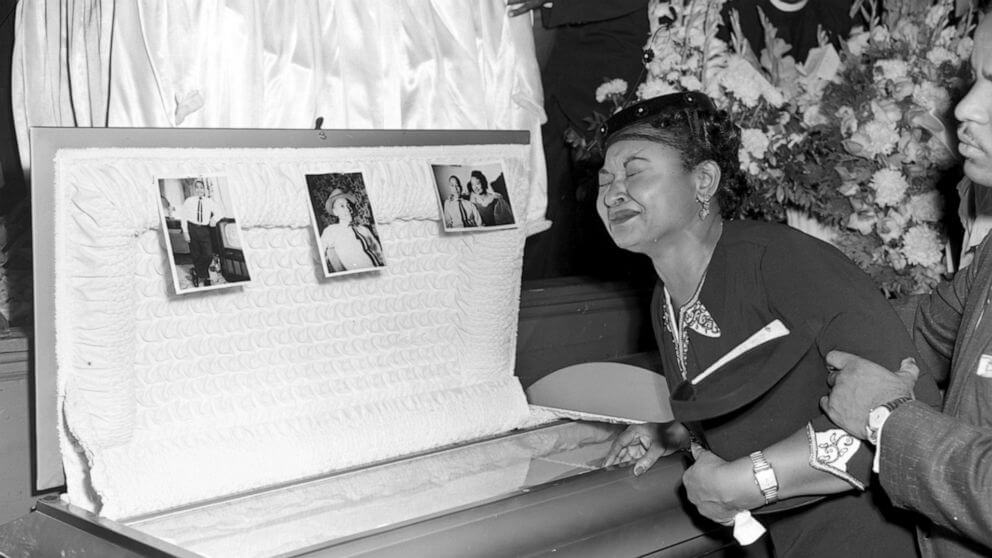
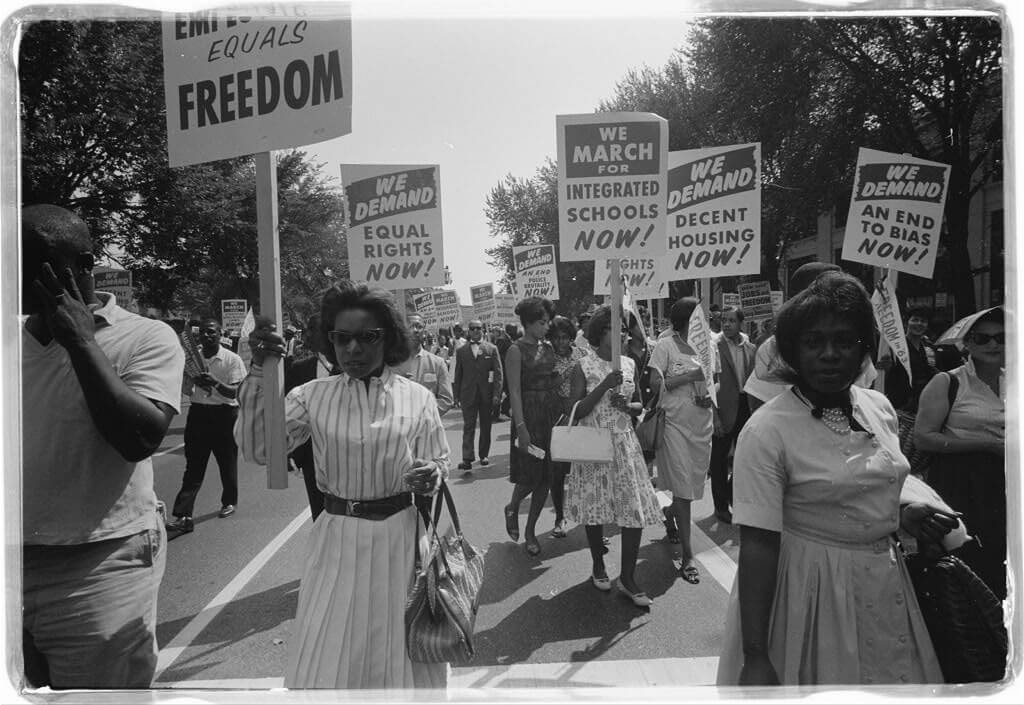

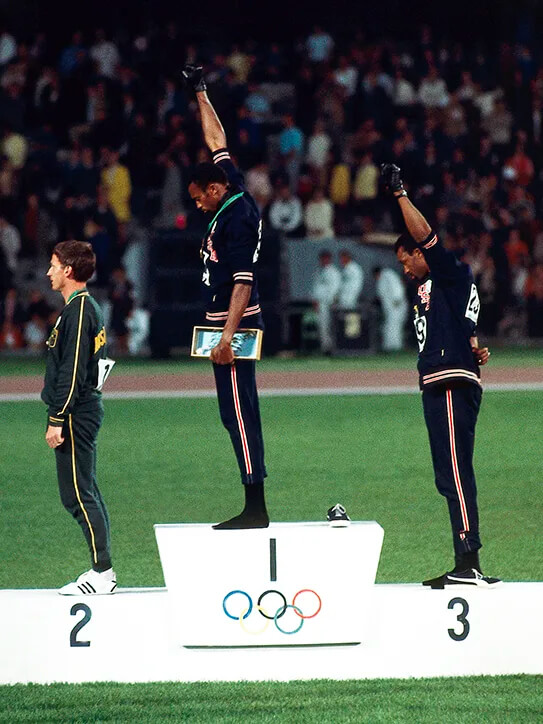

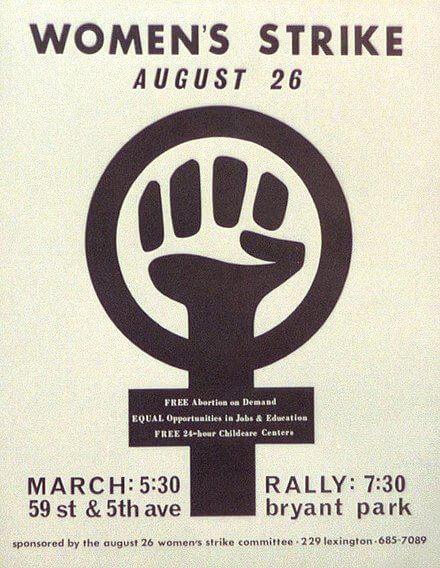
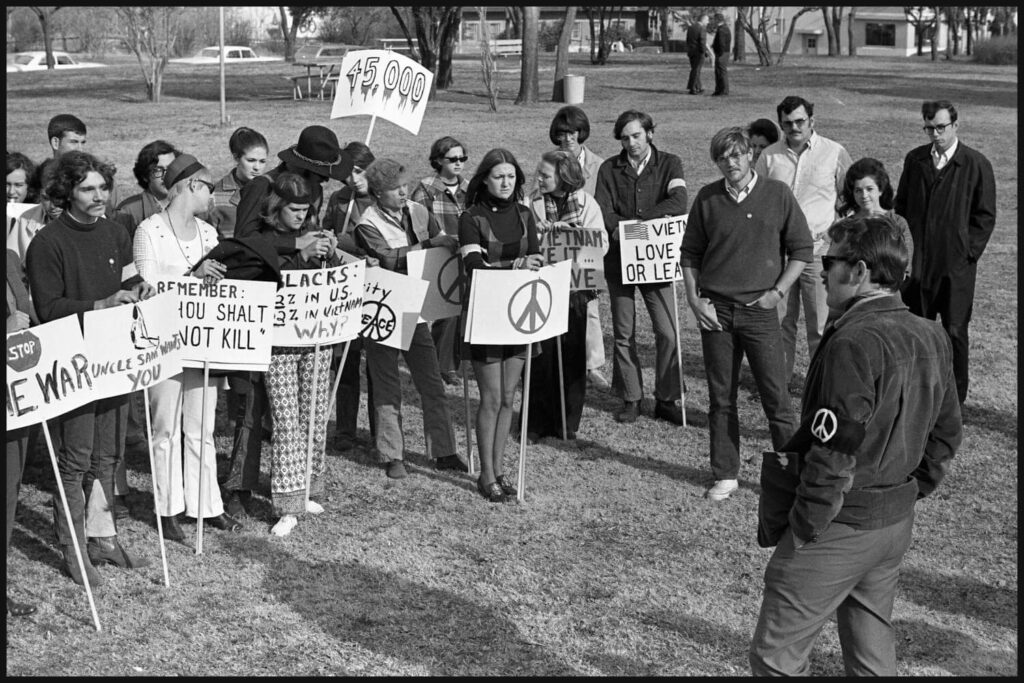

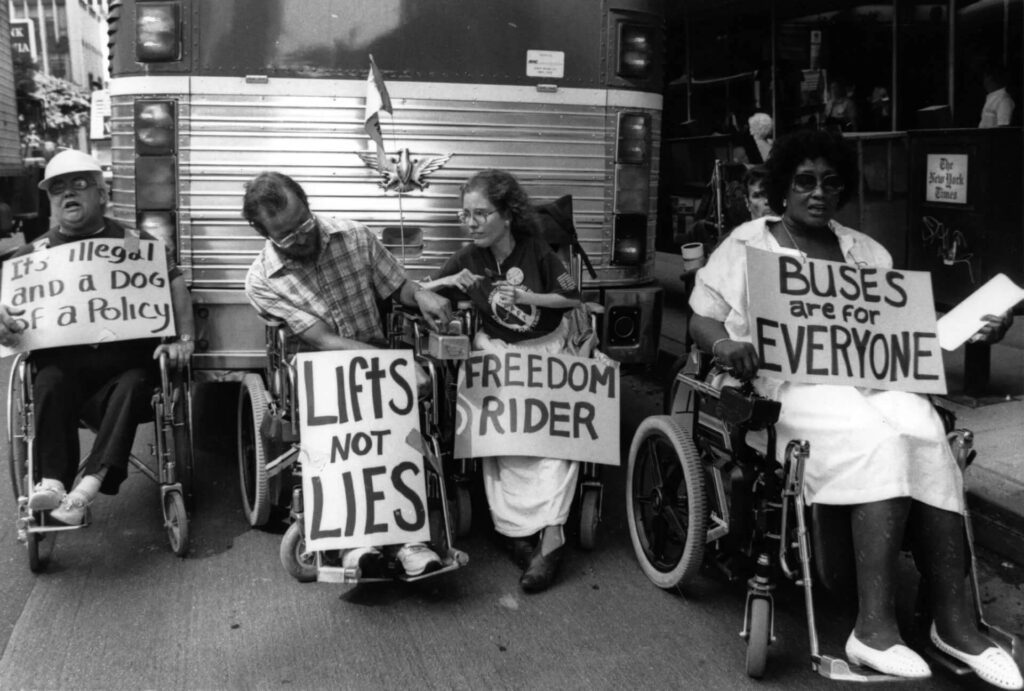
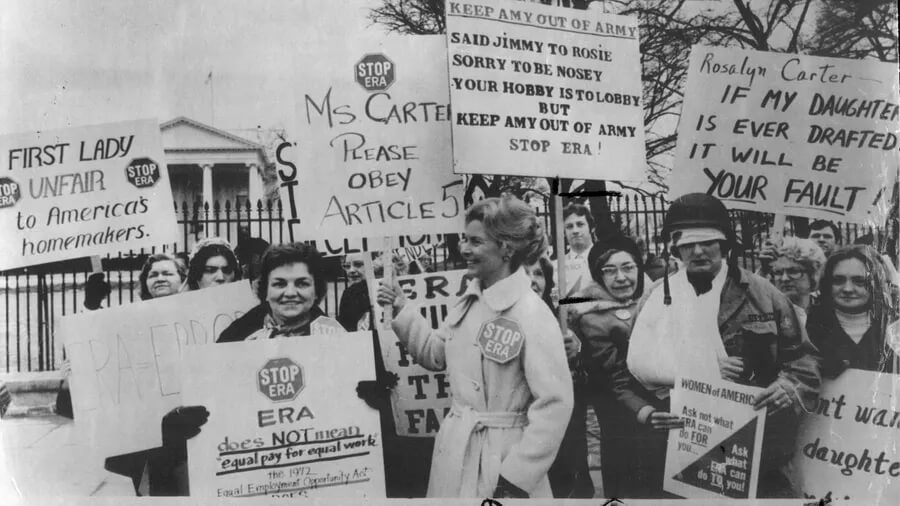
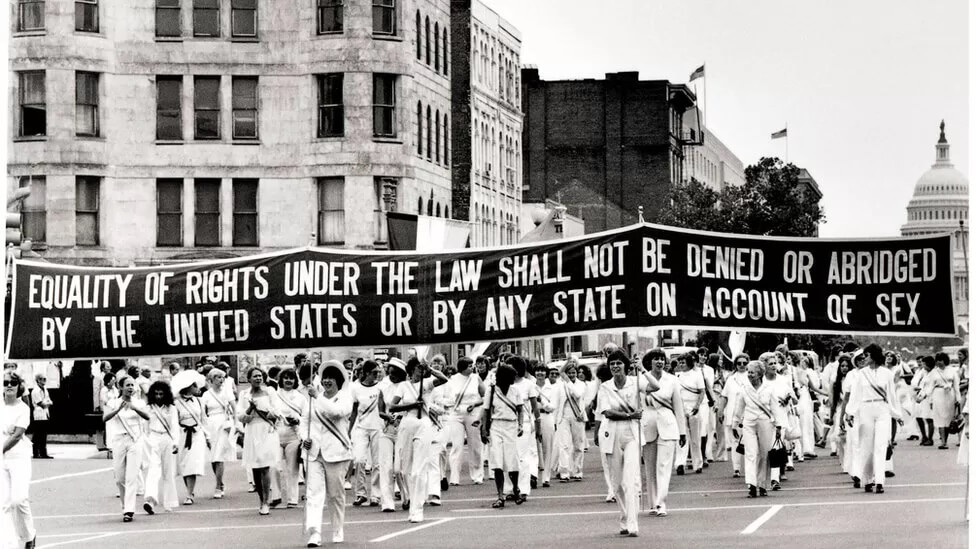
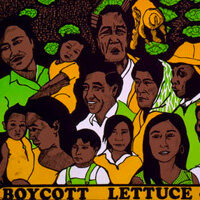
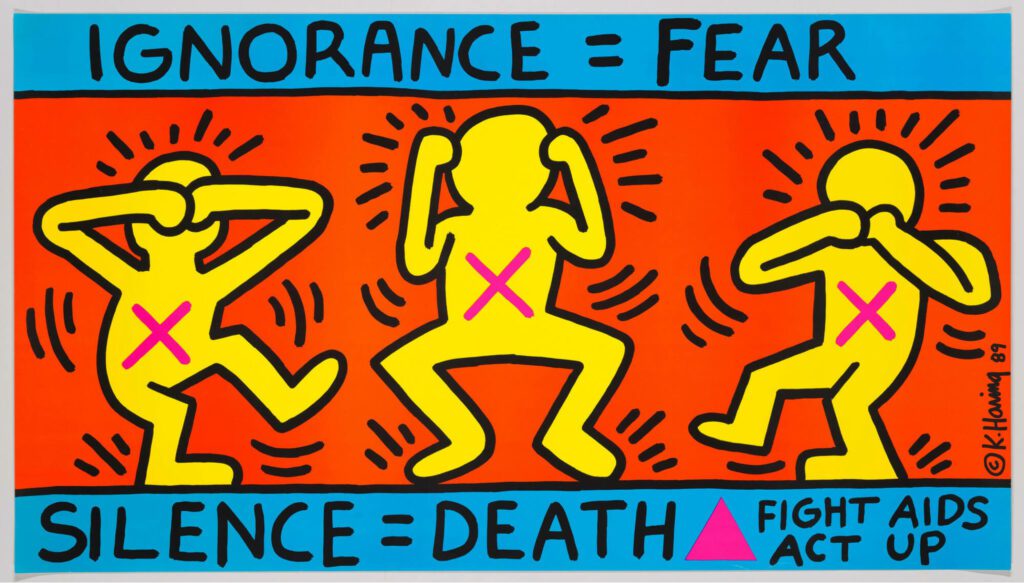

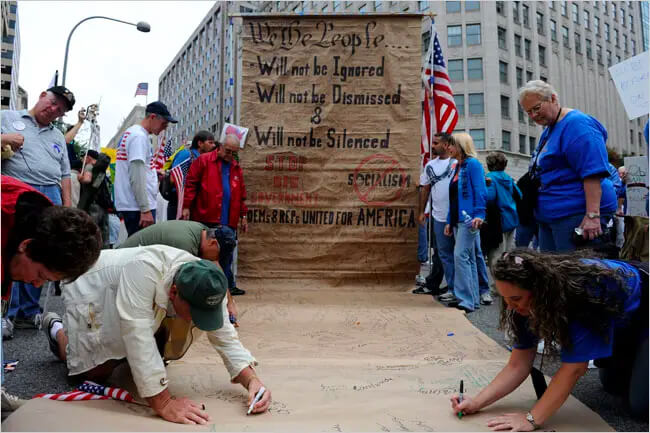



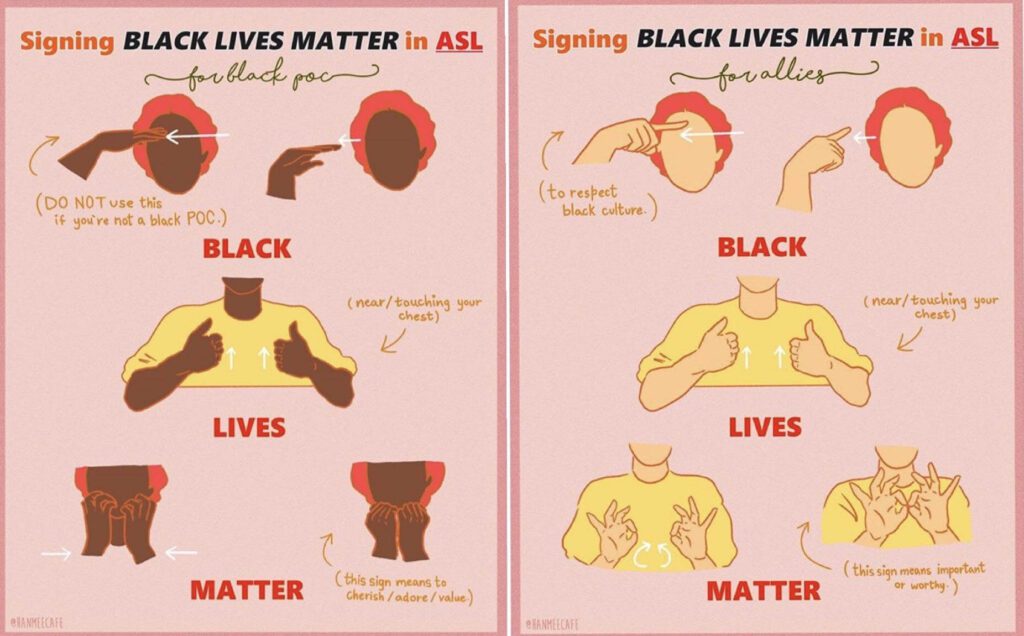
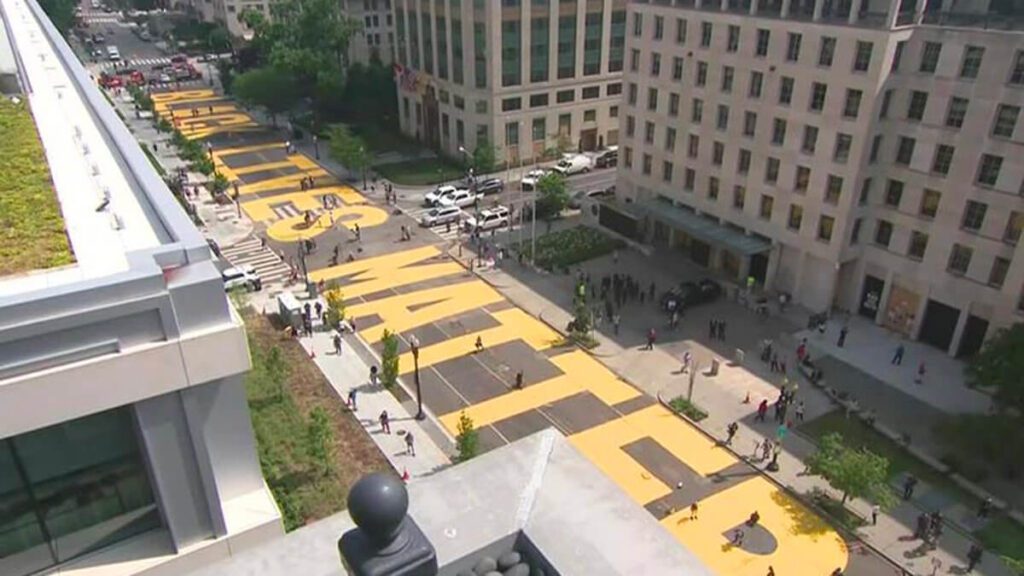
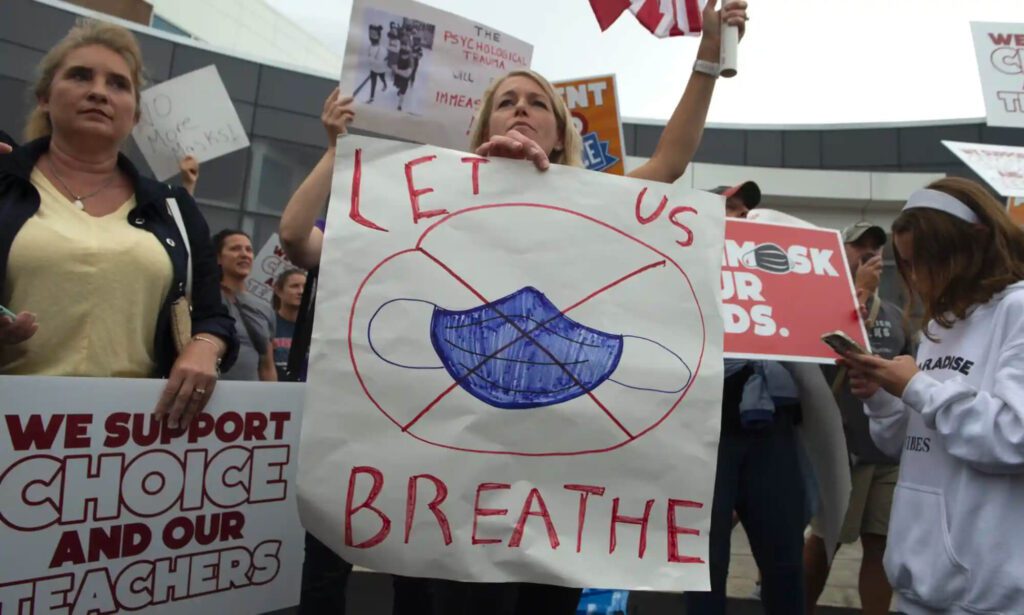

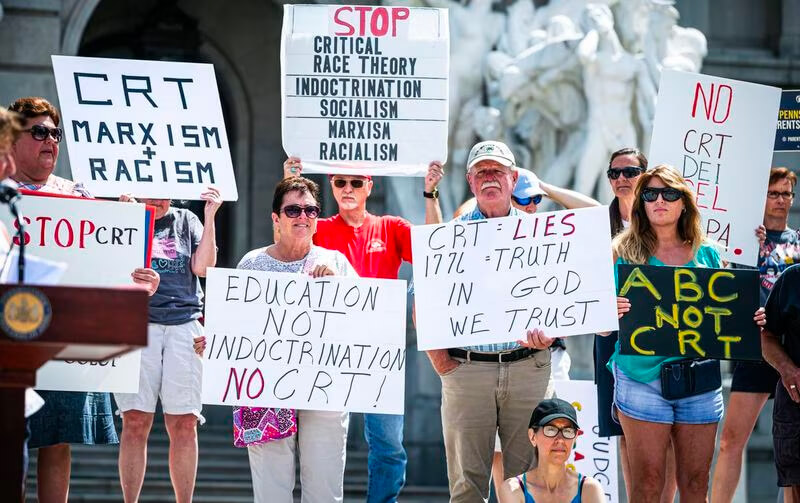



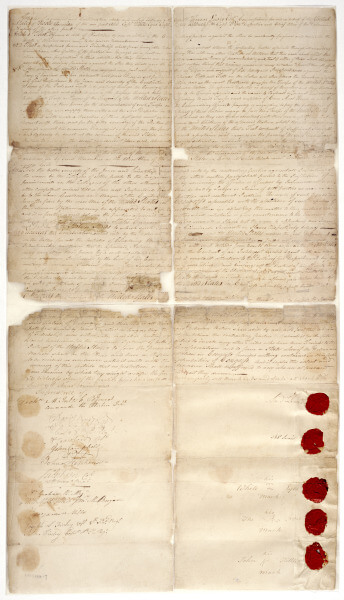
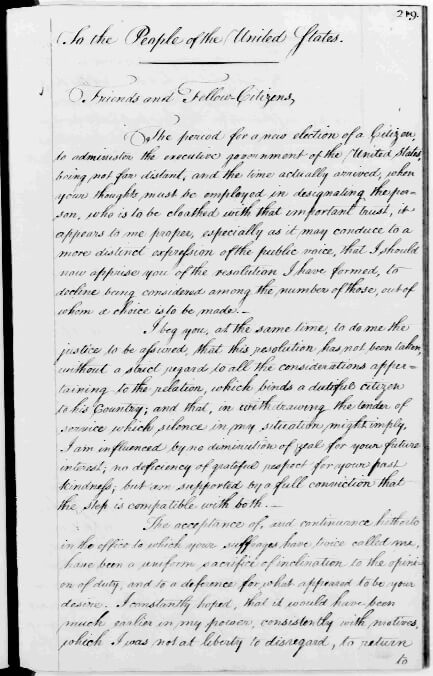
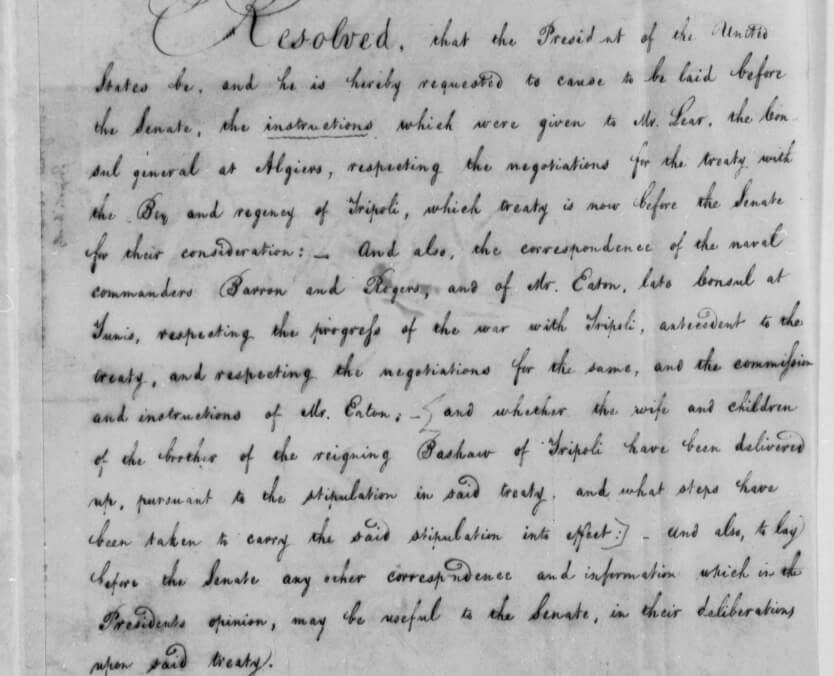
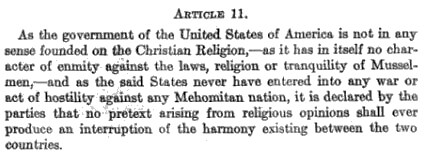
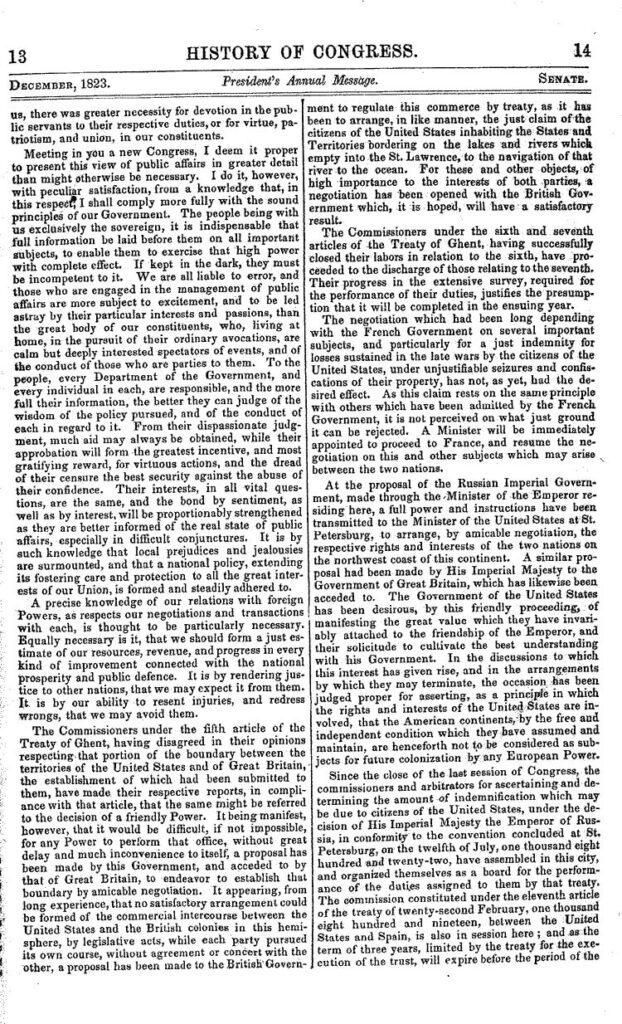
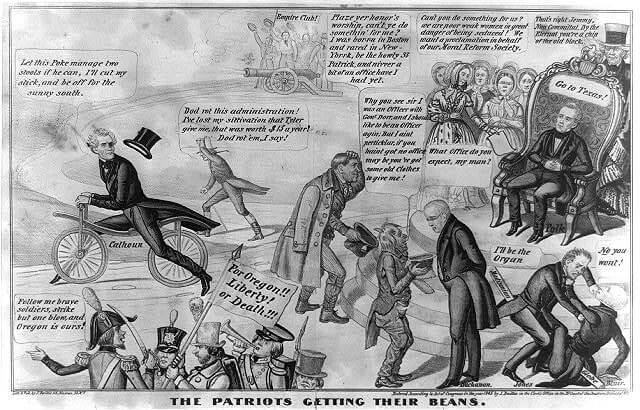
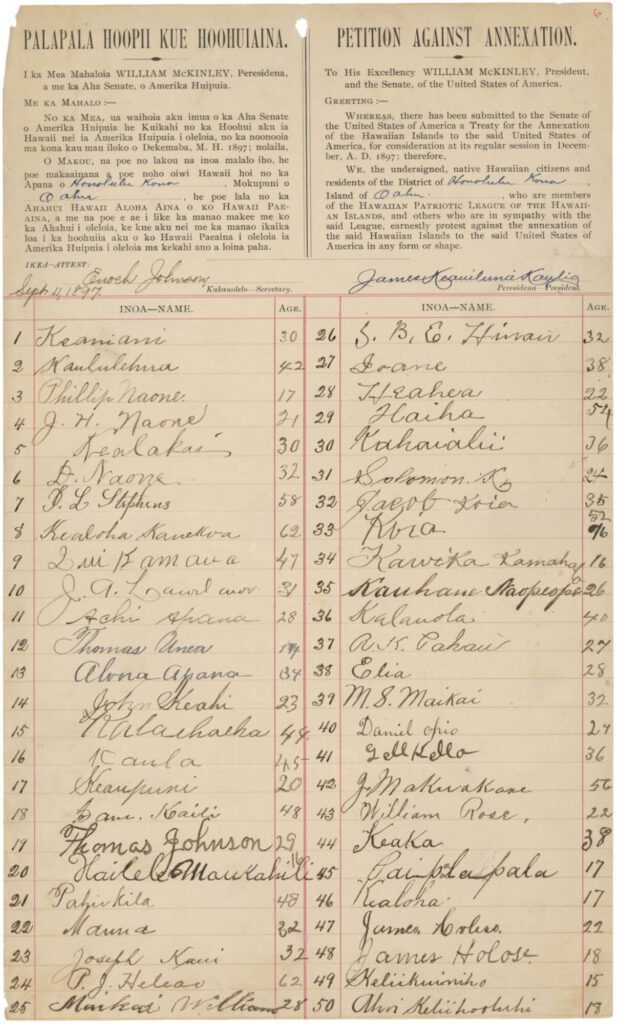
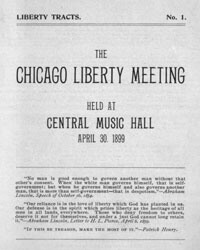
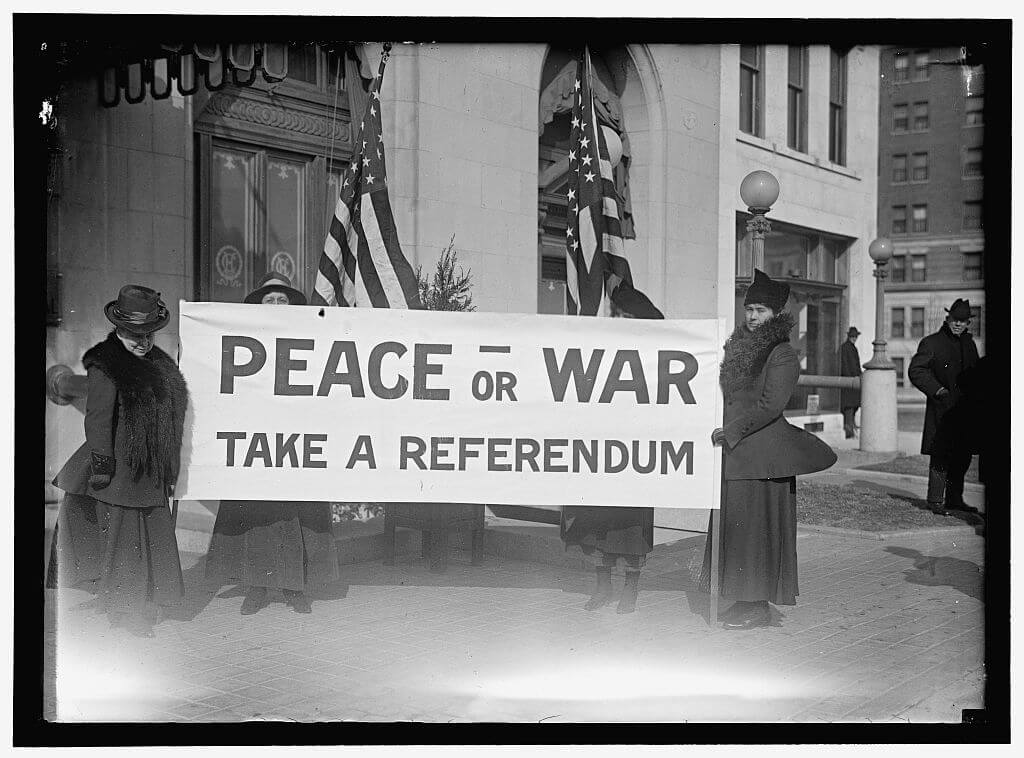
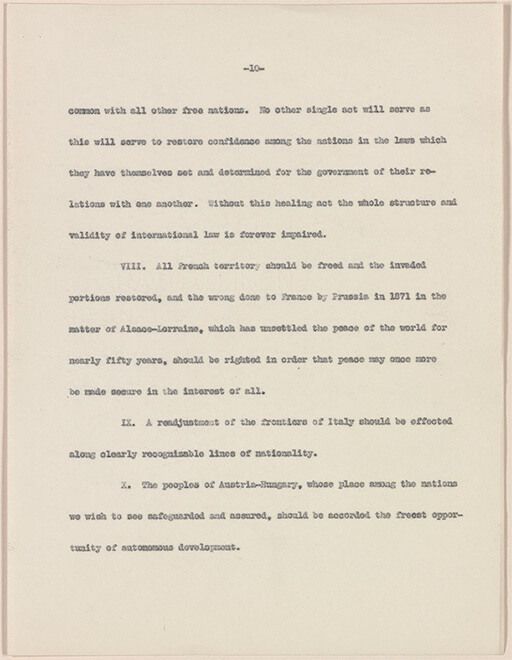
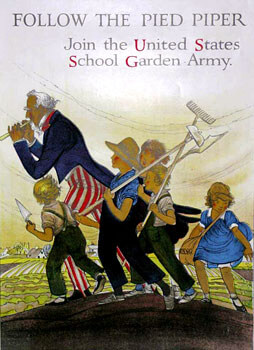
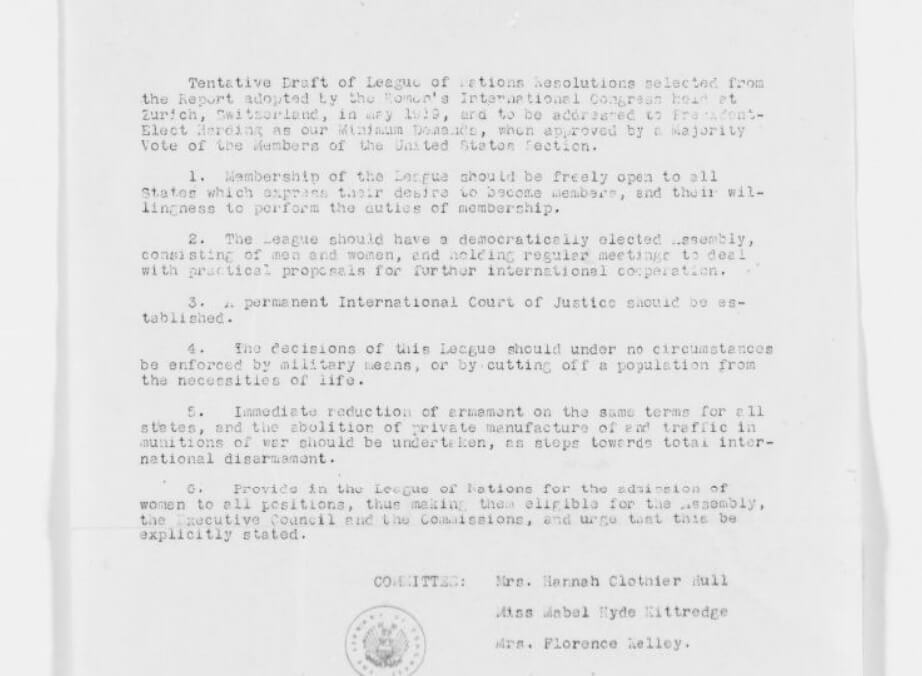
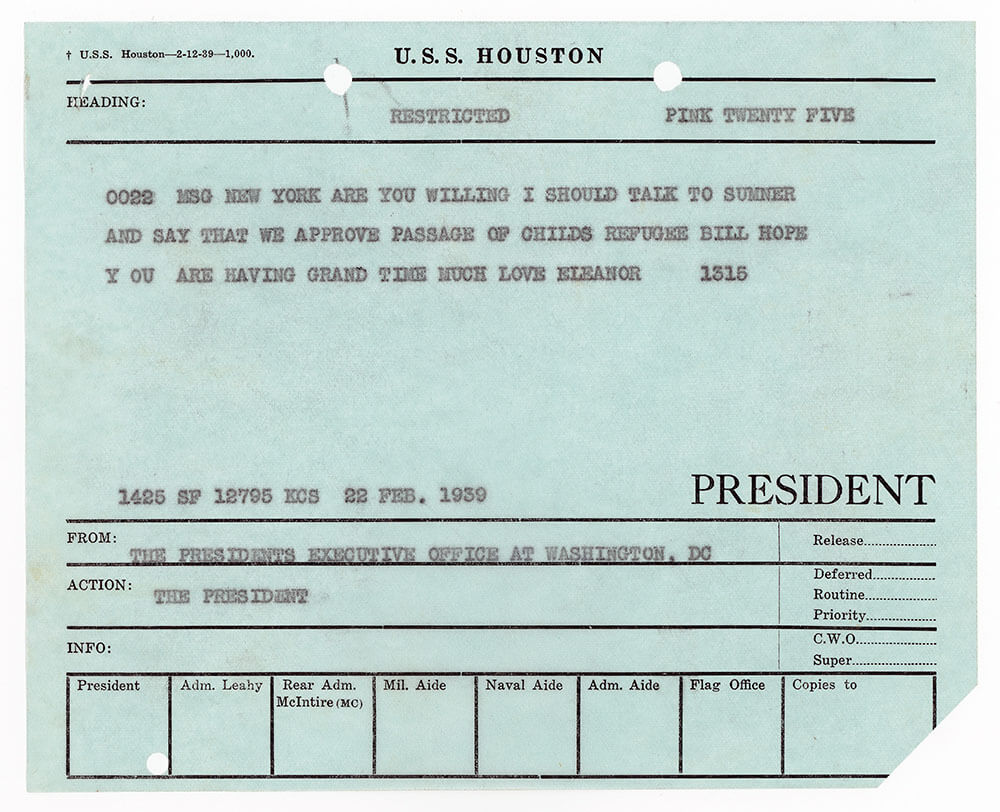
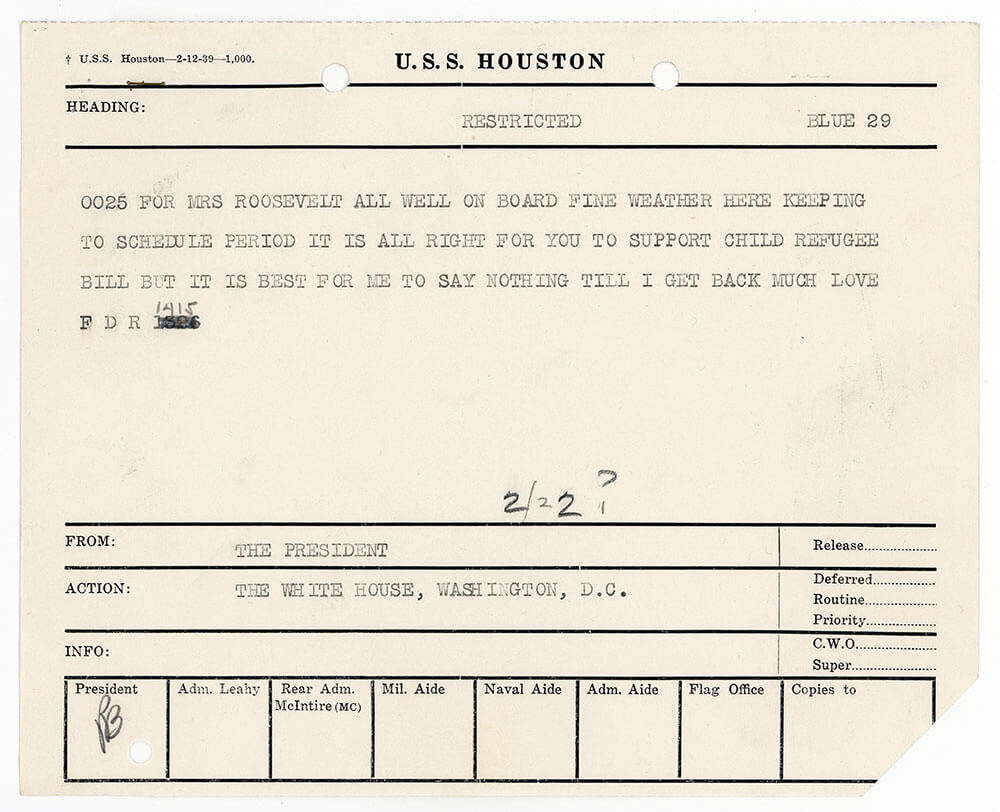
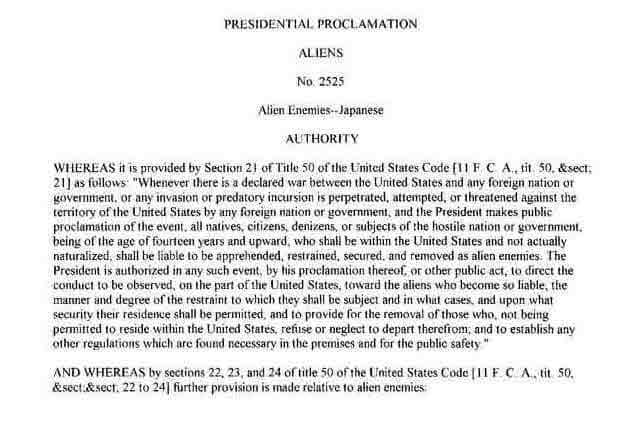
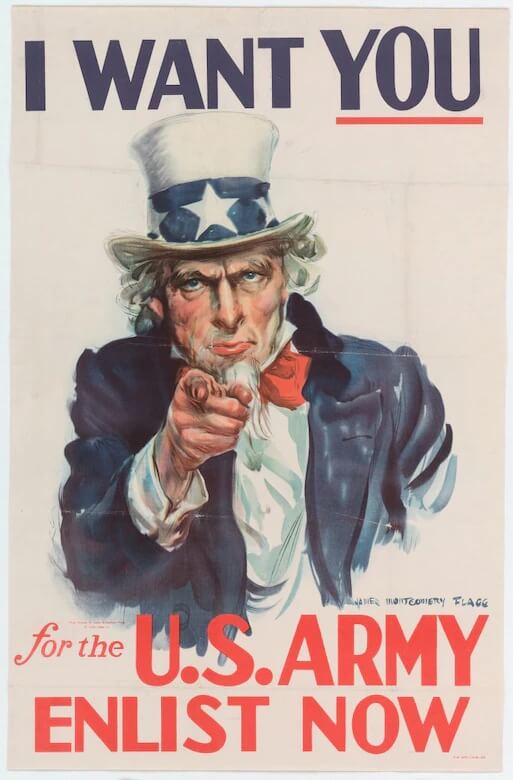
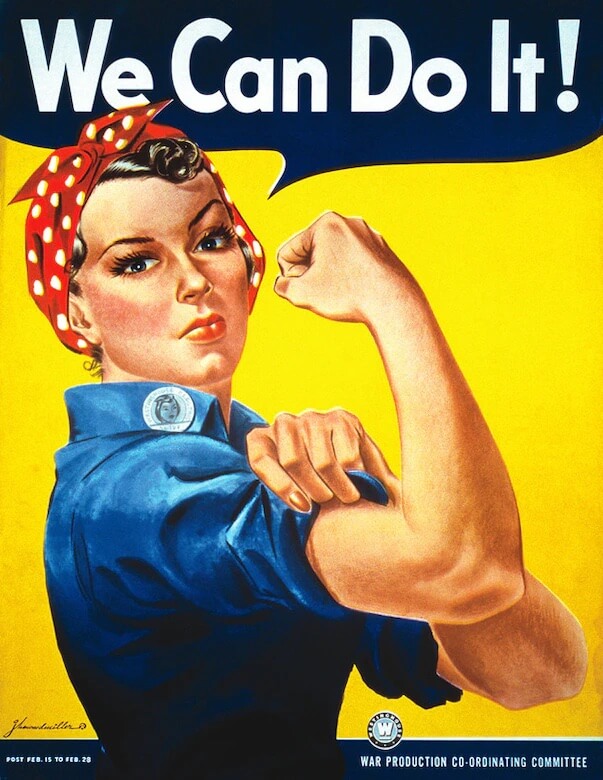
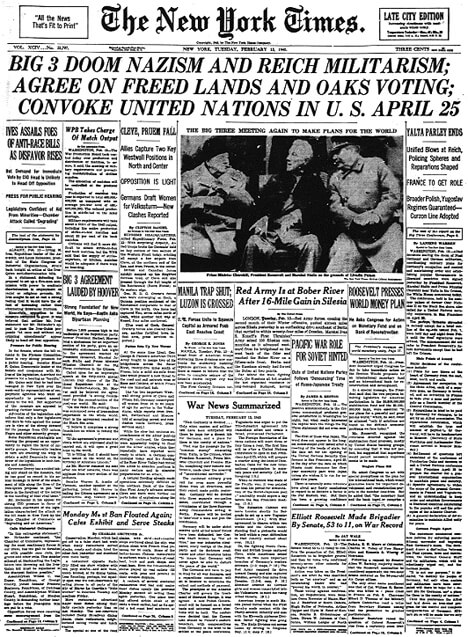
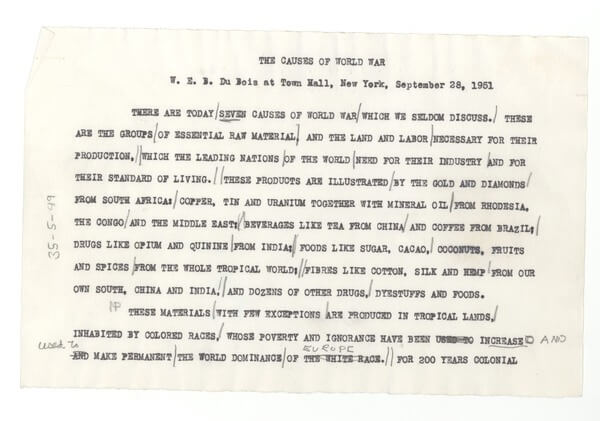
![U.S.S.R. Moscow, Mr. K[hrushchev] & V.P. Nixon on T.V. at American exhibit (1959)](/wp-content/uploads/2023/09/U.S.S.R.-Moscow-Mr.-Khrushchev-V.P.-Nixon-on-T.V.-at-American-exhibit-1959.jpg)
